Fellowships
Amir-Moezzi, Mohammad Ali, Ph.D.

Ashraf, Assef, Ph.D.

Baragchizadeh, Asal

Boylston, Nicholas, Ph.D.

Brentjes, Sonja, Ph.D.
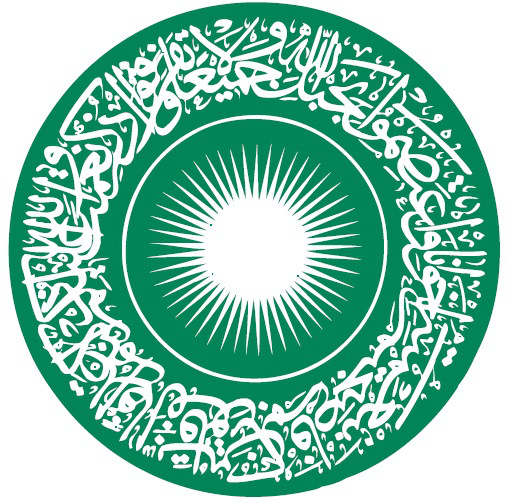
Cronin, Stephanie, Ph.D.

Daryaee, Touraj, Ph.D.

Davari, Azadeh, Ph.D.


Ebrahimian, Mojtaba

Farhad, Massumeh, Ph.D.

Farudi, Annahita, Ph.D.

Feiz, Parastou, Ph.D.

Ganjali, Maseeh

Garrison, Mark, Ph.D.

Gharipour, Mohammad, Ph.D.


Grigor, Talinn, Ph.D.
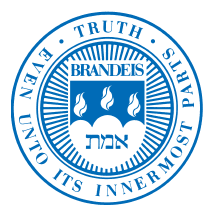

Kahnemuyipour, Arsalan, Ph.D.

Kalhor, Kayhan

Karimi, Simin, Ph.D.

Kashani, Deanna, Ph.D.

Katouzian, Homa, Ph.D.


Keshavarz, Fatemeh, Ph.D.

Khafipour, Hani, Ph.D.

Khosronejad, Pedram, Ph.D.
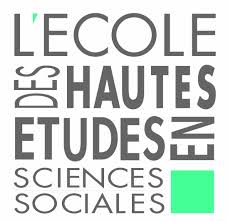
Koné, Amadou, Ph.D.

Ladjevardi, Habib, Ph.D.
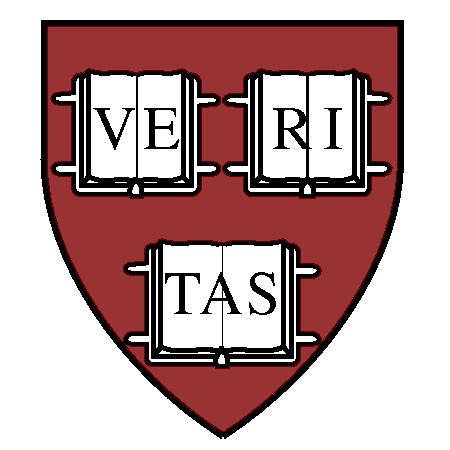
Larson, Richard, Ph.D.

Lingwood, Chad, Ph.D.

Malekzadeh, Soodabeh, Ph.D.

Matin-Asgari, Afshin, Ph.D.

Meftahi, Ida, Ph.D.

Mikolajczak, Tytus, Ph.D.


Miller, Matthew Thomas, Ph.D.

Monfaredi, Elham, Ph.D.

Mousavi, Ali, Ph.D.

Najmabadi, Afsaneh, Ph.D.

Namjoo, Mohsen

Nanquette, Laetitia, Ph.D.

Nourbakhsh, Safoura, Ph.D.

Omoumi, Hossein, Ph.D.


Raissadat, Sepideh

Rasekhi, Vahideh, Ph.D.

Rekabtalaei, Golbarg, Ph.D.

Sedighi, Anousha, Ph.D.

Stolper, Matthew, Ph.D.

Strauss, Susan, Ph.D.

Stronach, David

Tabibnia, Iraj

Talattof, Kamran, Ph.D.

Toosarvandani, Maziar, Ph.D.

Yarshater, Ehsan, Ph.D.


Ms. Negar Amir-Haeri obtained an LL.M. in International Law from Duke University School of Law in 2011 and has been a registered member of the Paris Bar Association (Barreau de Paris) since 2012. She has worked as an Associate at the Parisian law firm of Emmanuel Marsigny Avocats. Ms. Amir-Haeri completed two Master’s degrees: one in “Contentieux, arbitrage et modes amiables de règlement des conflits” from the Université Panthéon-Assas (2010) and the other in “Droit patrimonial approfondi” from the Université Paris I Panthéon-Sorbonne (2009).
In 2010, Ms. Amir-Haeri was awarded a Roshan Institute Fellowship for Excellence in Persian Studies while pursuing her LL.M. degree from Duke University School of Law. As part of her coursework, she researched negotiations between the American and Iranian governments, including the 1979 hostage crisis in the U.S. Embassy in Tehran.
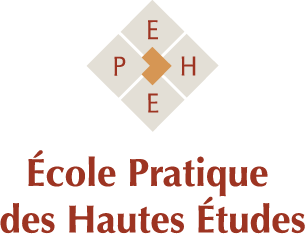
Professor Mohammad Ali Amir-Moezzi is Directeur d’études, Section des Sciences Religieuses, at the École Pratique des Hautes Études (EPHE) in Paris, France. He obtained a Ph.D. in Islamologie from the Université de Paris III (Sorbonne Nouvelle) / École Pratique des Hautes Études (Sorbonne) in 1991, and has been teaching at EPHE since 1994. His other affiliations and positions include: Senior Research Fellow at the Institute of Ismaili Studies; Consulting Editor for Encyclopaedia Iranica and Encyclopaedia Islamica; member of the editorial committee for Journal of the History of Sufism, Studia Iranica and Studia Islamica; and Co-Director of the collections “Islamica,” “Classical Muslim Heritage Series” and “The Shi’i Heritage Series.” Professor Amir-Moezzi has written and published extensively in French, Persian and English on Shi’ism, the Qur’an, Islamic history, and Persian history, literature and philosophy. He is the author of seven books and contributing author and/or director of eight others. On April 10, 2015, Professor Amir-Moezzi was invited to give a presentation to the members of the French Academy as part of the Academy’s weekly open sessions. A video of his presentation on “Les cinq membres intellectifs de l’homme de Dieu” is available for viewing here.
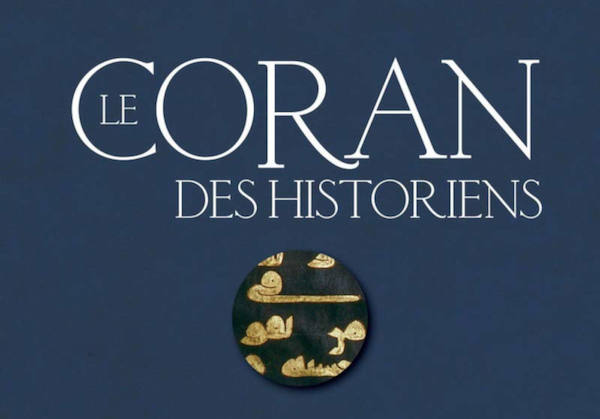 In 2015, Professor Amir-Moezzi was awarded a Roshan Institute Fellowship for the publication of Le Coran des Historiens. The new publication is a complement of Dictionnaire du Coran (Bouquins, 2007). Le Coran des Historiens offers, in three volumes of about 1,000 pages each, a complete and critical synthesis of past works and present research on the origins of the Koran, its formation and appearance, its composition and its canonization. is to provide a general audience with a clear, accessible, yet scientific, rigorous research. This scholarly book was published by the Editions du Cerf in November 2019.
In 2015, Professor Amir-Moezzi was awarded a Roshan Institute Fellowship for the publication of Le Coran des Historiens. The new publication is a complement of Dictionnaire du Coran (Bouquins, 2007). Le Coran des Historiens offers, in three volumes of about 1,000 pages each, a complete and critical synthesis of past works and present research on the origins of the Koran, its formation and appearance, its composition and its canonization. is to provide a general audience with a clear, accessible, yet scientific, rigorous research. This scholarly book was published by the Editions du Cerf in November 2019.
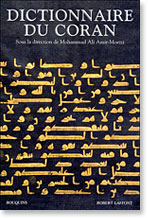 In 2004, Professor Amir-Moezzi was awarded a Roshan Institute Fellowship for the publication of Dictionnaire du Coran (Bouquins, 2007). Open to non-specialist readers as well as to students of Islam and religious historians, Dictionnaire du Coran is comprised of over 500 entries by an international team of authors, among the best scholars from various branches of Islamic and Koranic studies. Its 1,024 pages contain hundreds of bibliographical references and an exhaustive index making the dictionary an indispensable tool for research as well as an asset for all libraries. Since its publication in French, Dictionnaire du Coran has been translated in Italian (2007) and English (2012).
In 2004, Professor Amir-Moezzi was awarded a Roshan Institute Fellowship for the publication of Dictionnaire du Coran (Bouquins, 2007). Open to non-specialist readers as well as to students of Islam and religious historians, Dictionnaire du Coran is comprised of over 500 entries by an international team of authors, among the best scholars from various branches of Islamic and Koranic studies. Its 1,024 pages contain hundreds of bibliographical references and an exhaustive index making the dictionary an indispensable tool for research as well as an asset for all libraries. Since its publication in French, Dictionnaire du Coran has been translated in Italian (2007) and English (2012).

Dr. Assef Ashraf is currently Lecturer in Eastern Islamic Lands and the Persian-speaking World at the Faculty of Asian and Middle Eastern Studies at the University of Cambridge, UK. He received his Ph.D. in History at Yale University in 2016 and his B.A. from New York University in 2005, where he was a recipient of the Rumi-Biruni prize for excellence in Persian Studies.
Mr. Ashraf was awarded a Roshan Institute Fellowship for Excellence in Persian Studies in 2014-2015 for the completion of his doctoral dissertation, “From Khan to Shah: Political Culture, State Formation, and Patronage in Qajar Iran, 1785-1834,” at Yale University, under the supervision of Professor Abbas Amanat.
Baragchizadeh, Asal

Ms. Asal Baragchizadeh is currently a Ph.D. student in Cognition and Neuroscience at the University of Texas at Dallas, where she received an M.A. in Applied Cognition and Neuroscience (2015). She holds an M.P.A from Northeastern University (2008) and a B.A. in Biomedical Engineering from Islamic Azad University in Tehran (2008). Ms. Baragchizadeh was an Asia Pacific Leadership Program Fellow at the East-West Center in Honolulu, and has worked at the UNESCO Tehran Cluster Office.
Ms. Baragchizadeh was supported by a Roshan Institute Fellowship for Excellence in Persian Studies while pursuing her Master of Public Administration degree from Northeastern University in 2010-2011.
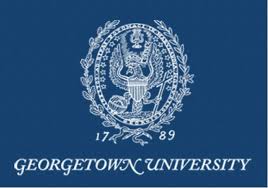
Dr. Nicholas Boylston is currently Lecturer (half-time) in the Committee on the Study of Religion, Visiting Postdoctoral Fellow at the Center for Middle Eastern Studies, and Visiting Fellow at the Center for the Study on World Religions, at Harvard University. He received his Ph.D. in Religious Studies and Pluralism from Georgetown University, where he studied Persian literature and Islamic intellectual history through the lenses of religious, intellectual and literary pluralism. His research interest also includes the role of literature as a means of negotiating multiple religious identities in late Qajar Iran, focusing on the versified commentary and translation of the Qur’an by the Shi’i Sufi, Safi ‘Ali-Shah. Dr. Boylston was Preceptor of Persian in the Department of Near Eastern Languages and Civilizations at Harvard University during the academic year 2014-2015. He received his M.A. in Islamic Philosophy from Tehran University (2011) and his B.A. in Near Eastern Languages and Civilizations and Sanskrit and Indian Studies from Harvard College (2007).
Mr. Boylston was awarded a Roshan Institute Fellowship for Excellence in Persian Studies to complete his doctoral dissertation, “The Significance of Religious Diversity in the Works of Sana’i, ‘Attar and ‘Ayn al-Qudat Hamadani,” during the academic year 2016-2017. He successfully defended his doctoral dissertation in August 2017.

Dr. Sonja Brentjes has been a Research Scholar at the Max Planck Institute for the History of Science in Berlin since 2012. Her research focuses on transformations of verbal, visual and manual knowledge in Islamicate societies and the Mediterranean world. Dr. Brentjes was previously a Research Scholar at the University of Sevilla (2008-2012) and Associate Professor at the Institute for the Study of Muslim Cultures, Aga Khan University International (London, UK/Pakistan, 2004-2007). She holds a doctorate (Dr. rer. nat. habil.) in History of Science from the University of Leipzig (1991). Some of her publications include ‘Travellers from Europe in the Ottoman and Safavid Empires, 16th-17th centuries Seeking, Transforming, Discarding Knowledge’ in Variorum Collected Studies Series: CS961 (Farnham, Surrey: Ashgate, 2010); ‘The sciences in Islamic societies’ in The New Cambridge History of Islam. Vol. 4: Islamic cultures and societies to the end of the eighteenth century (Cambridge University Press, Cambridge, 2013); and ‘Cartography in Islamic societies’ in Kitchin R, Thrift N (eds.) International Encyclopedia of Human Geography (Oxford: Elsevier, 2009).
In 2006, Dr. Brentjes was awarded a Roshan Institute Fellowship for a two-year history research on Iranian identity, while Assistant Professor at the Aga Khan University International in London. The research objectives included recording and analyzing the imaginations of individual Iranians with regard to what constitutes the history of Iran; contributing to a more nuanced understanding of the manner in which Iranian identities are constructed under the conditions of a dictatorial state; documenting oral-history data; and participating academically in the process of democratization and pluralist opinion formation in Iran.

Dr. Stephanie Cronin is currently the Elahé Omidyar Mir-Djalali Research Fellow (2018-2025) at St. Antony’s College and in the Faculty of Oriental Studies, University of Oxford. She previously was Roshan Institute Visiting Research Fellow at Oxford (2015-2018); Senior Research Fellow at the University of Northampton (1999-2009); Lecturer in the Contemporary History of the Near and Middle East at the School of Oriental and African Studies, University of London (1993-1997); Lecturer in the Faculty of Oriental Studies, University of Cambridge (1993-1994); and Fellow of the British Institute of Persian Studies (1983-1987). She is the author of Armies and State-building in the Modern Middle East: Politics, Nationalism and Military Reform (I. B. Tauris, 2014); Shahs, Soldiers and Subalterns in Iran: Opposition, Protest and Revolt, 1921-1941 (Palgrave Macmillan, 2010); Tribal Politics in Iran: Rural Conflict and the New State, 1921-1941 (Routledge, 2006); and The Army and the Creation of the Pahlavi State in Iran, 1910-1926 (I. B. Tauris, 1997). She received her Ph.D. in History (1992) and her M.A. in Middle East Studies (1981) from the School of Oriental and African Studies.
In 2018, Dr. Cronin was awarded a three-year Elahé Omidyar Mir-Djalali Research Fellowship (2018-2021) to continue teaching modern Iranian history, conduct a major new project entitled Modern Iran: A Transformational History and establish an annual Elahé Omidyar Mir-Djalali Lecture as well as a new book series on historical studies of Iran and the Persian world with Edinburgh Publishing Press.
In 2015, Dr. Cronin received a three-year Roshan Institute Visiting Research Fellowship (2015-2018) to teach at St. Antony’s College; conduct research for the upcoming publication of her book, “Iran: A People’s History”; and organize an international conference devoted to the same topic. The conference, titled “The ‘Dangerous Classes’ in Middle East and North Africa”, was successfully held on January 26, 2017, at Oxford, with ten speakers and more than 100 in attendance. The publication of her book is planned for spring 2018.
In 2012, Dr. Cronin was awarded a Roshan Institute Fellowship for a workshop and publication on “Russian Orientalism to Soviet Iranology“. The workshop took place on November 30 – December 1, 2012, at St. Antony’s College. The workshop papers were published in a special issue of Iranian Studies in September 2015.
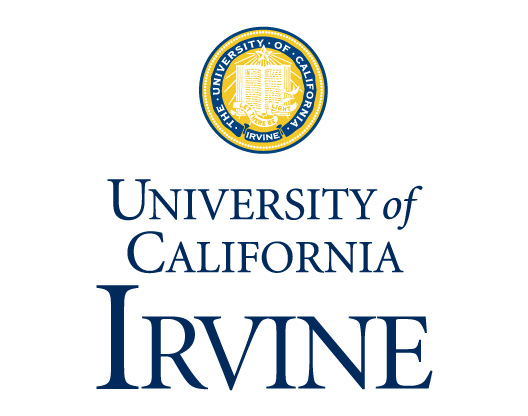
Professor Touraj Daryaee is Maseeh Chair in Persian Studies and Culture and Director of the Dr. Samuel M. Jordan Center for Persian Studies and Culture at the University of California, Irvine. His books include Cyrus the Great: An Ancient Iranian King (Afshar Press, 2015), Excavating an Empire: Ancient Persian in Longue Duree (Mazda Publishers, 2014), Sasanian Persian: The Rise and Fall of an Empire (I. B. Tauris, 2009) and Late Antique Iran: Portrait of a Late Antique Empire (Mazda Publishers, 2008). Professor Daryaee is the Editor of Name-ye Iran-e Bastan: The International Journal of Ancient Iranian Studies at Iran University Press and of DABIR: Digital Archives of Brief notes and Iran Review at UCI. He received a Ph.D. in History from UCLA in 1999.
In 2017, Roshan Cultural Heritage Institute awarded a grant to UC Irvine in support of three annual programs: the Elahé Omidyar Mir-Djalali Symposium on Ancient Iranian History and Civilization, the Elahé Omidyar Mir-Djalali Symposium on Persian Language and Literature, and the Elahé Omidyar Mir-Djalali Lectures, to be held at the UCI Jordan Center for Persian Studies and Culture. The annual programs were organized under the leadership of Professor Daryaee, for three consecutive academic years.
In 2010, Professor Daryaee was awarded a Roshan Institute Fellowship for the Sasanika: The Late Antique Iran Project, 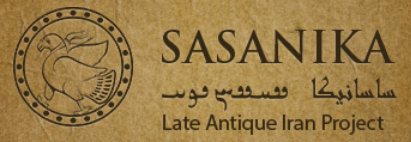 which aims to bring to light the importance of the Sasanian civilization in the context of late antique and world history. Our grant was used to facilitate the publication of the Sasanika Occasional Papers and the Sasanika Series, monographs on Sasanian Iran; as well as to provide an honorarium for scholars abroad (namely those in Iran, Armenia and Georgia) to submit articles related to Sasanika research
which aims to bring to light the importance of the Sasanian civilization in the context of late antique and world history. Our grant was used to facilitate the publication of the Sasanika Occasional Papers and the Sasanika Series, monographs on Sasanian Iran; as well as to provide an honorarium for scholars abroad (namely those in Iran, Armenia and Georgia) to submit articles related to Sasanika research
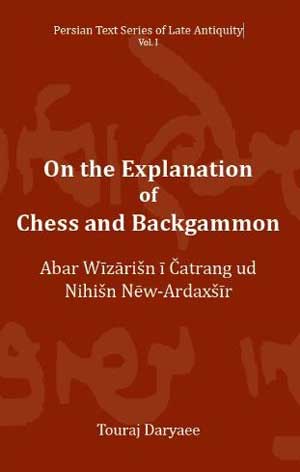 Professor Daryaee also received in 2010 a Roshan Institute Fellowship for the publication of On the Explanation of Chess and Backgammon, a Middle Persian text concerned with the earliest story of the invention and rules of the games of chess and backgammon in the sixth century CE, during the rule of the great Sasanian king of kings, Khusro I (531-579 CE). These games along with polo and the hunt were part of princely or courtly education in ancient Iran which continued until the modern times.
Professor Daryaee also received in 2010 a Roshan Institute Fellowship for the publication of On the Explanation of Chess and Backgammon, a Middle Persian text concerned with the earliest story of the invention and rules of the games of chess and backgammon in the sixth century CE, during the rule of the great Sasanian king of kings, Khusro I (531-579 CE). These games along with polo and the hunt were part of princely or courtly education in ancient Iran which continued until the modern times.


Dr. Azadeh Davari currently is a Leadership Solutions Facilitator for the Center for Creative Leadership in San Diego. She obtained her Ph.D. in Leadership Studies in May 2018 from the Department of Leadership Studies at the University of San Diego (USC), where she received an M.A. in Nonprofit Leadership and Management in 2015. Prior to her graduate studies, Dr. Davari held several positions at the Iranian Food & Nutrition Leadership program at the National Nutrition and Food Technology Research Institute of Shahid Beheshti University of Medical Sciences. Dr. Davari holds an M.Sc. in Food Science and Technology from Shahid Beheshti University of Medical Sciences and a B.Sc. in Food Engineering from the School of Food Science & Technology of Azad (Open) University, both in Tehran.
In 2013, Ms. Davari was awarded a Roshan Institute Fellowship for Excellence in Persian Studies for her work in the M.A. program at USC. This program allowed her to reinforce her interest in the development of leadership programs for food and nutrition specialists in Iran and elsewhere.
In 2011, Ms. Davari received a Roshan Institute Fellowship for a research internship at the East-West Center in Honolulu, Hawaii. Her internship focused on relations between the U.S. and the Islamic world.
Roshan Cultural Heritage Institute provided a grant to the East-West Center to support Ms. Davari‘s participation in the Asia Pacific Leadership Program (APLP) in 2009-2010. APLP graduates are knowledgeable about the societies and issues of the Asia Pacific region and empowered to exercise leadership and promote cooperation in a variety of cultural, geographical and institutional environments. Ms. Davari‘s success with the APLP led her to a research internship with Energy Economics from June 2010 – December 2010.

Dr. Mojtaba Ebrahimian received a Ph.D. in Middle Eastern and North African Studies from the University of Arizona in 2020. His research interests include Iranian modern and contemporary literature and culture, literary theory, as well comparative literary and cultural studies. He completed his M.A. in English Literature at Shahid Beheshti University in Tehran, Iran.
Mr. Ebrahimian was awarded the Elahé Omidyar Mir-Djalali Fellowship for Excellence in Persian Studies for the completion of his doctoral dissertation, “The Persian Travelogue and the Rise of the Persian Novel in Nineteenth Century,” in academic year 2018-2019.
Mr. Ebrahimian has been offered the position of Preceptor in Persian in the Department of Near Eastern Languages and Civilizations at Harvard University, starting in the academic year 2021.
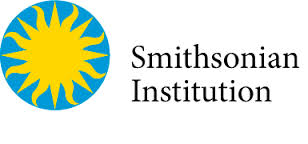
Dr. Massumeh Farhad joined the Freer Gallery of Art and Arthur M. Sackler Gallery (Freer|Sackler) at the Smithsonian Insitution in 1995 as Associate Curator of Islamic Art. In 2004, she was appointed Chief Curator and Curator of Islamic Art, and became Chief Curator and The Ebrahimi Family Curator of Persian, Arab and Turkish Art in 2017. She is a specialist in the arts of the book from 16th- and 17th-century Iran. Dr. Farhad has curated numerous exhibitions on the arts of the Islamic world at Freer|Sackler, including Art of the Persian Courts (1996), Fountains of Light: The Nuhad Es-Said Collection of Metalwork (2000), Love and Yearning: Mystical and Moral Themes in Persian Painting (2003), Style and Status: Imperial Costumes from Ottoman Turkey (2005-6), The Tsars and the East: Gifts from Turkey and Iran in the Moscow Kremlin (2009), Falnama: The Book of Omens (2009), Roads of Arabia: History and Archaeology of the Kingdom of Saudi Arabia (2014), and The Art of the Qur’an: Treasures from the Museum of Turkish and Islamic Arts (2016-17). Prior to joining Freer|Sackler, Dr. Farhad was Artistic Director of the Zamana Gallery in London and a Research Assistant/Associate at the Center for Advanced Study in the Visual Arts, at the National Gallery of Art in Washington, D.C. She received her Ph.D. in Islamic Art History from Harvard University in 1987.
In 2016, Roshan Cultural Heritage Institute provided a grant to the Smithsonian Institution to underwrite the scholarly catalog 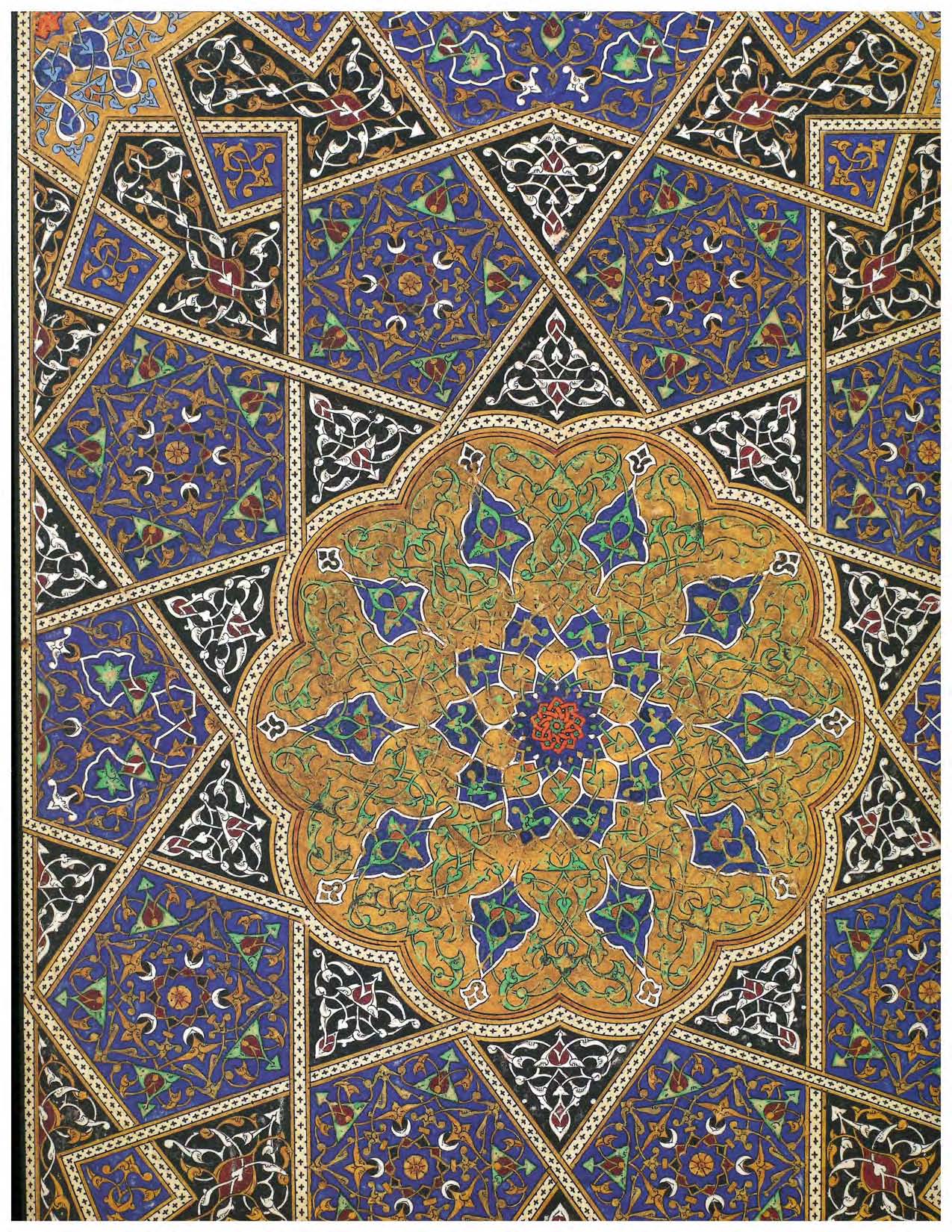 that accompanied the exhibition, The Art of Qur’an: Treasures from the Museum of Turkish and Islamic Arts. On display at the Arthur M. Sackler Gallery from October 22, 2016 to February 20, 2017, the event was the first-ever international loan exhibition of some of the finest Qur’ans in the world, ranging in date from the late seventh to the seventeenth centuries. The exhibition catalog was co-edited by Dr. Farhad and Dr. Simon Rettig, Curatorial Fellow for the Arts of the Islamic World at Freer|Sackler. As one of the few recent publications on the formal and artistic aspects of manuscripts on the Qur’ans, the catalog has been an important and welcomed addition to the fields of art history, as well as cultural and religious studies. The catalog’s 67 entries include beautiful photographs of the items displayed in the exhibition (Qur’ans, Qur’an chests and Qur’an stands) along detailed item descriptions.
that accompanied the exhibition, The Art of Qur’an: Treasures from the Museum of Turkish and Islamic Arts. On display at the Arthur M. Sackler Gallery from October 22, 2016 to February 20, 2017, the event was the first-ever international loan exhibition of some of the finest Qur’ans in the world, ranging in date from the late seventh to the seventeenth centuries. The exhibition catalog was co-edited by Dr. Farhad and Dr. Simon Rettig, Curatorial Fellow for the Arts of the Islamic World at Freer|Sackler. As one of the few recent publications on the formal and artistic aspects of manuscripts on the Qur’ans, the catalog has been an important and welcomed addition to the fields of art history, as well as cultural and religious studies. The catalog’s 67 entries include beautiful photographs of the items displayed in the exhibition (Qur’ans, Qur’an chests and Qur’an stands) along detailed item descriptions.
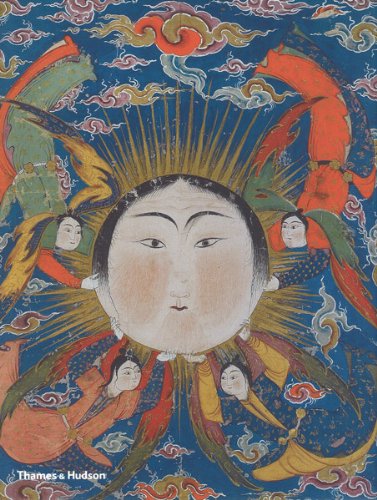 In 2009, Roshan Cultural Heritage Institute provided a grant to the Smithsonian Institution to underwrite the scholarly catalog accompanying the exhibition, Falnama: The Book of Omens. Displayed at the Arthur M. Sackler Gallery from October 2009 to January 2010, this event was the first-ever exhibition dedicated to these rare works – a group of unusual, illustrated manuscripts that were once used by sultans, shahs and commoners to explore the unknown – created in 16th- and 17th-century Iran and Turkey. The exhibition’s fully illustrated catalog was co-edited by Dr. Farhad and Serpil Bagci, Professor of Art History at Hacettepe University in Ankara, Turkey. It offered the first comprehensive exploration of the Falnama and the practice of bibliomancy in Islamic culture. Essays by a number of eminent historians shed light on a chapter of Ottoman and Safavid history that is largely unexplored.
In 2009, Roshan Cultural Heritage Institute provided a grant to the Smithsonian Institution to underwrite the scholarly catalog accompanying the exhibition, Falnama: The Book of Omens. Displayed at the Arthur M. Sackler Gallery from October 2009 to January 2010, this event was the first-ever exhibition dedicated to these rare works – a group of unusual, illustrated manuscripts that were once used by sultans, shahs and commoners to explore the unknown – created in 16th- and 17th-century Iran and Turkey. The exhibition’s fully illustrated catalog was co-edited by Dr. Farhad and Serpil Bagci, Professor of Art History at Hacettepe University in Ankara, Turkey. It offered the first comprehensive exploration of the Falnama and the practice of bibliomancy in Islamic culture. Essays by a number of eminent historians shed light on a chapter of Ottoman and Safavid history that is largely unexplored.
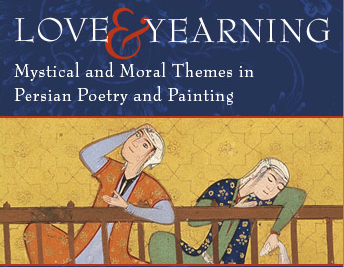 In 2003, Roshan Cultural Heritage Institute supported the exhibition, Love and Yearning: Mystic and Moral Themes in Persian Poetry and Painting, and related programs including an interactive station featuring illustrations from the Haft Awrang (Seven Thrones), at the Arthur M. Sackler Gallery. It included 26 illustrated manuscripts that demonstrated how 15th- to 17th-century artists transformed the rich imagery of mystical concepts found in Persian lyrical poetry into stylized, meticulously detailed and colorful images. The exhibition was curated by Dr. Farhad and was on display from August 30, 2003 to February 22, 2004.
In 2003, Roshan Cultural Heritage Institute supported the exhibition, Love and Yearning: Mystic and Moral Themes in Persian Poetry and Painting, and related programs including an interactive station featuring illustrations from the Haft Awrang (Seven Thrones), at the Arthur M. Sackler Gallery. It included 26 illustrated manuscripts that demonstrated how 15th- to 17th-century artists transformed the rich imagery of mystical concepts found in Persian lyrical poetry into stylized, meticulously detailed and colorful images. The exhibition was curated by Dr. Farhad and was on display from August 30, 2003 to February 22, 2004.
Farudi, Annahita, Ph.D.

Dr. Annahita Farudi is currently an Adjunct Professor in Linguistics at the University of Saskatchewan, Canada. Her interests include syntactic theory, formal semantics, and the Iranian languages. Dr. Farudi completed her Ph.D. in Linguistics at the University of Massachussetts at Amherst (2013) with a dissertation on “Gapping in Farsi: A cross-linguistic investigation.” She received an M.Phil. in Theoretical Linguistics from the University of Oxford (2005) and a B.A. in Comparative Literature and Linguistics from the University of Virginia (2003).
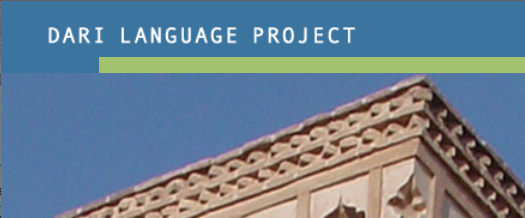 In 2004, Roshan Cultural Heritage Institute provided a fellowship to University of Virginia Linguistics students, Annahita Farudi and Maziar Toosarvandani, in support of the Dari Language Project. The primary goals of the Dari Language Project were to contribute to the preservation and perpetuation of Dari; fund and organize linguistic research, primarily on-site linguistic fieldwork; and disseminate the findings in both public and academic venues. The project, which has since launched a website and an online dictionary, has received attention from online Iranian culture and linguistics resources, and has been acknowledged by authors of published works. Both students have also published papers based on findings from the fieldwork and presented related research by invitation in the US and Europe.
In 2004, Roshan Cultural Heritage Institute provided a fellowship to University of Virginia Linguistics students, Annahita Farudi and Maziar Toosarvandani, in support of the Dari Language Project. The primary goals of the Dari Language Project were to contribute to the preservation and perpetuation of Dari; fund and organize linguistic research, primarily on-site linguistic fieldwork; and disseminate the findings in both public and academic venues. The project, which has since launched a website and an online dictionary, has received attention from online Iranian culture and linguistics resources, and has been acknowledged by authors of published works. Both students have also published papers based on findings from the fieldwork and presented related research by invitation in the US and Europe.

Dr. Parastou Feiz is currently Associate Professor of Applied Linguistics and TESL in the Department of English at California State University, San Bernadino, where she began teaching in 2007. She completed her Ph.D. in Applied Linguistics at Pennsylvania State University in 2007. Dr. Feiz published Discourse Analysis. Putting Our Worlds into Words with Dr. Susan Strauss (Routledge, 2013).
In 2006, Parastou Feiz was awarded a Roshan Institute Fellowship for Excellence in Persian Studies for the completion of her doctoral dissertation, “The Expression and Conceptualization of Motion through Space and Manner of Motion in Persian and in English: A Comparative Analysis,” in the Department of Applied Linguistics at Pennsylvania State University. Her dissertation has been published by ProQuest in 2011.
Ganjali, Maseeh

Mr. Maseeh Ganjali obtained a Master of Fine Arts (M.F.A.) in 2016 from the University of Hawai’i at Manoa, where he received a B.A. in Theater in 2012 and played a key role in the promotion of the Persian Language, Linguistics and Culture Program established by Roshan Cultural Heritage Institute at UH Manoa (2013-2018). Mr. Ganjali has directed several Persian performances, including Bijan Mofid‘s play The Butterfly performed at UH Manoa in 2015, and Puppets, a Bahram Beyzai play performed at UH Manoa, Doris Duke’s Shangri-La and Honolulu Academy of Arts in 2009.
In 2019, Roshan Cultural Heritage Institute sponsored the production of Children of Isfahan, an award-winning play written by Mr. Ganjali. The play was successfully staged in March and April in Honolulu, HI.
In December 2016, Mr. Ganjali received a Roshan Institute Fellowship for Excellence in Persian Studies to conduct field research on traditional Iranian puppetry.
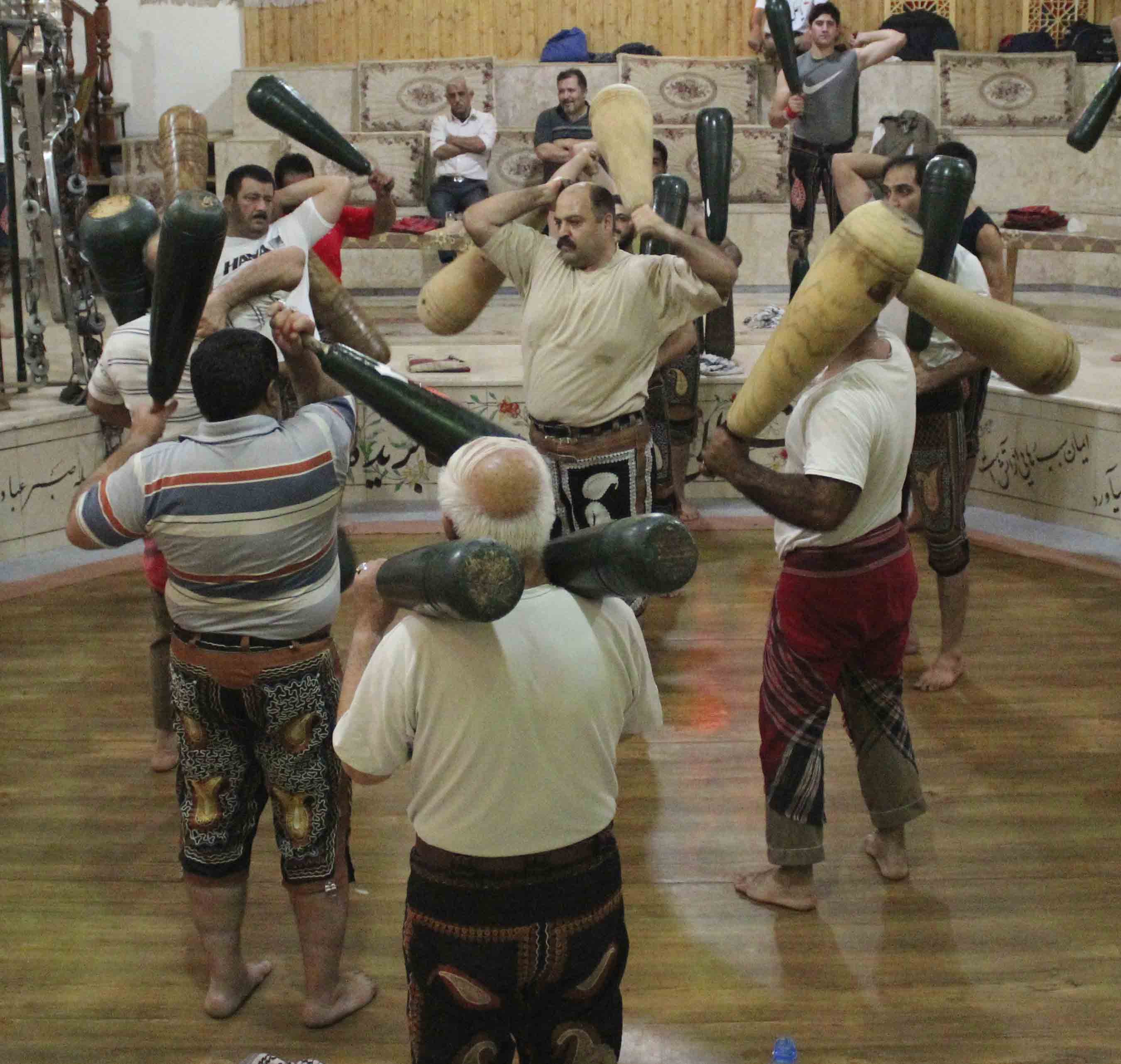 In 2011-2012, Mr. Ganjali was awarded a Roshan Institute Fellowship for Excellence in Persian Studies to support a photography series about the Parde-khani and Kheymeshab-bazi performance traditions of Iran. His first exhibit, COMMON PEOPLE, COMMON PLACES ~ Photographs from Iran, was showcased at the UH Manoa’s Hamilton Library during spring and summer 2012; his second photography exhibit, Zoorkhane: House of Strength, was displayed at the University’s Hamilton Library Alcove during summer and fall 2014.
In 2011-2012, Mr. Ganjali was awarded a Roshan Institute Fellowship for Excellence in Persian Studies to support a photography series about the Parde-khani and Kheymeshab-bazi performance traditions of Iran. His first exhibit, COMMON PEOPLE, COMMON PLACES ~ Photographs from Iran, was showcased at the UH Manoa’s Hamilton Library during spring and summer 2012; his second photography exhibit, Zoorkhane: House of Strength, was displayed at the University’s Hamilton Library Alcove during summer and fall 2014.
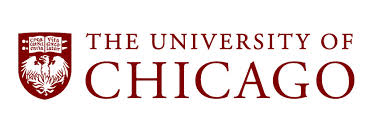
Professor Mark B. Garrison is Alice Pratt Brown Professor of Art and Art History at Trinity University, where he has been teaching since 1989. He also is the Editor of the Persepolis Fortification Archive (PFA) project at the Oriental Institute, The University of Chicago. His primary research interests are the glyptic arts of ancient Iran and Iraq in the early first millennium B.C. He has devoted decades of study to the PFA tablets and is known as the foremost expert on Achaemenid glyptic art, having published extensively on the subject. Professor Garrison received his Ph.D. in Classical Art and Archaeology from the University of Michigan (1988) and his M.A. in Classics from the University of Ottowa (1981).
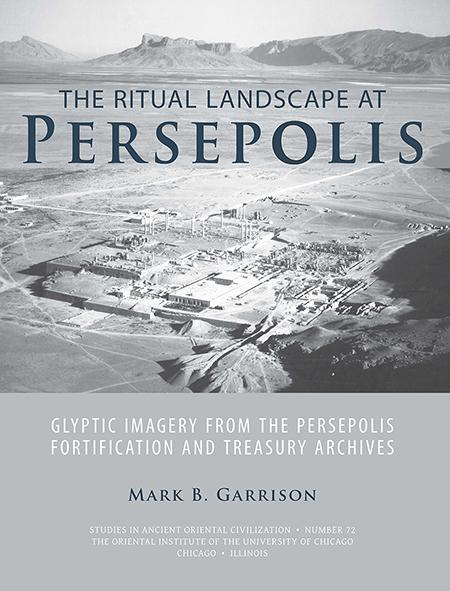 In 2016, Professor Garrison was awarded a Roshan Institute Fellowship for the publication of The Ritual Landscape at Persepolis: Glyptic Imagery from the Persepolis Fortification and Treasury Archives, by the Oriental Institute at The University of Chicago, in the series “Studies in Ancient Oriental Civilization”. The book arises from a series of invited lectures that Professor Garrison delivered at the Collège de France, Paris, in 2009; and was awarded the 2018 Ehsan Yarshater Book Award by the Association of Iranian Studies.
In 2016, Professor Garrison was awarded a Roshan Institute Fellowship for the publication of The Ritual Landscape at Persepolis: Glyptic Imagery from the Persepolis Fortification and Treasury Archives, by the Oriental Institute at The University of Chicago, in the series “Studies in Ancient Oriental Civilization”. The book arises from a series of invited lectures that Professor Garrison delivered at the Collège de France, Paris, in 2009; and was awarded the 2018 Ehsan Yarshater Book Award by the Association of Iranian Studies.


Dr. Mohammad Gharipour is Professor at the School of Architecture and Planning at Morgan State University in Baltimore. Previously, he taught at Southern Polytechnic State University, Georgia Institute of Technology, University of North Carolina at Charlotte, and Maryland Institute College of Art. He is the recipient of the Hamad Bin Khalifa Fellowship in Islamic Art (2007), the Sprio Kostof Fellowship Award from the Society of Architectural Historians (2008), the Morgan State University award for Outstanding Research (2013) and the National Endowment in Humanities Faculty Award (2014). In February 2016, he was selected by Diverse: Issues in Higher Education magazine as one of twelve minority scholars who are making their mark in academia. Dr. Gharipour has published extensively on architectural and landscape history. He is also the Director and Founding Editor of the International Journal of Islamic Architecture. He received his Ph.D. in Architecture from Georgia Institute of Technology (2009) and his Master in Architecture from the University of Tehran (2001).
 In 2010, Dr. Gharipour, then Visiting Assistant Professor in the School of Architecture at the University of North Carolina at Charlotte, was awarded a Roshan Institute Fellowship for the publication of Persian Gardens and Pavilions: Reflections in History, Poetry and the Arts (I. B. Tauris, 2013). In this book, Dr. Gharipour places both the garden and the pavilion within their historical, literary and artistic contexts, emphasizing the importance of the pavilion, so overlooked in the study of Iranian historical architecture. He does so by examining the representations of gardens and pavilions in religious texts, the poetry of major Persian poets, miniature painting, sculpture and carpets, as well as accounts of travelers to Persia. He thereby highlights the spiritual, symbolic and religious aspects of gardens, as well as their more social and economic functions, reflecting patterns of patronage and ownership.
In 2010, Dr. Gharipour, then Visiting Assistant Professor in the School of Architecture at the University of North Carolina at Charlotte, was awarded a Roshan Institute Fellowship for the publication of Persian Gardens and Pavilions: Reflections in History, Poetry and the Arts (I. B. Tauris, 2013). In this book, Dr. Gharipour places both the garden and the pavilion within their historical, literary and artistic contexts, emphasizing the importance of the pavilion, so overlooked in the study of Iranian historical architecture. He does so by examining the representations of gardens and pavilions in religious texts, the poetry of major Persian poets, miniature painting, sculpture and carpets, as well as accounts of travelers to Persia. He thereby highlights the spiritual, symbolic and religious aspects of gardens, as well as their more social and economic functions, reflecting patterns of patronage and ownership.


Dr. Talinn Grigor is currently Professor of Art History at the University of California, Davis. She previously was Associate Professor of Art History in the Department of Fine Arts at Brandeis University. Her research concentrates on the cross-pollination of architecture and (post)colonial politics, focused on Iran and India. Her present project deals with the turn-of-the-century European art-historiography and its links to eclectic-revivalistic architecture in Qajar Iran and the British Raj. Dr. Grigor obtained both her Ph.D. (2005) and Master in Architecture (1998) from Massachussetts Institute of Technology.
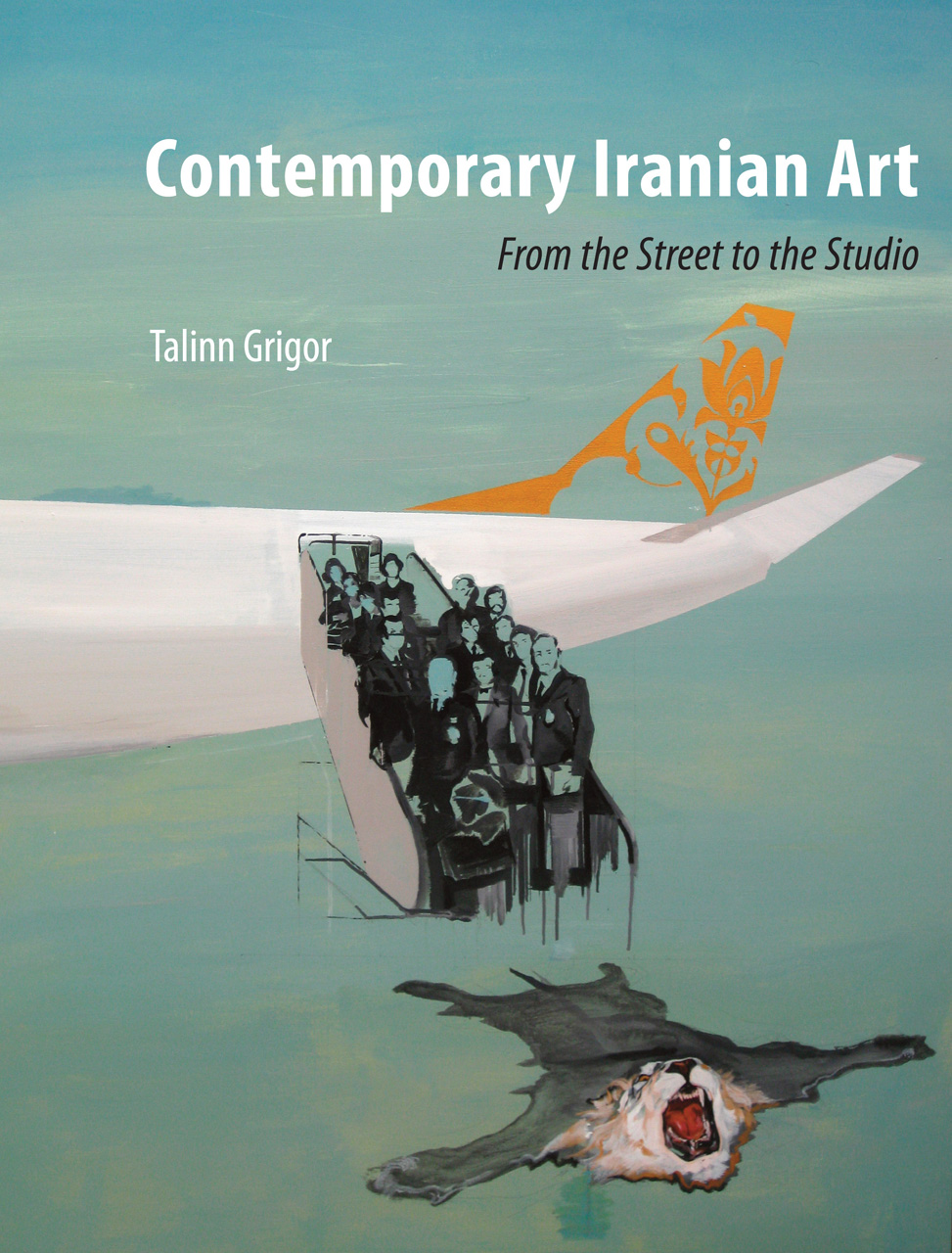 In 2013, Dr. Talinn Grigor, then Associate Professor at Brandeis University, was awarded a Roshan Institute Fellowship for the publication of Contemporary Iranian Art: From the Street to the Studio (London, Reaktion Books, June 2014). This book is the first single-author, art historical study on contemporary Iranian art and visual culture since the 1979 revolution. Divided into three parts – street, studio and exile – it covers official art sponsored by the Islamic Republic, the culture of avant-garde art created in the studio and its display in galleries and museums, and the art of the Iranian diaspora within the Western art scene.
In 2013, Dr. Talinn Grigor, then Associate Professor at Brandeis University, was awarded a Roshan Institute Fellowship for the publication of Contemporary Iranian Art: From the Street to the Studio (London, Reaktion Books, June 2014). This book is the first single-author, art historical study on contemporary Iranian art and visual culture since the 1979 revolution. Divided into three parts – street, studio and exile – it covers official art sponsored by the Islamic Republic, the culture of avant-garde art created in the studio and its display in galleries and museums, and the art of the Iranian diaspora within the Western art scene.
In 2003, Ms. Grigor received a Roshan Institute Fellowship for Excellence in Persian Studies toward her Ph.D. work at MIT’s School of Architecture + Planning. Her dissertation, “Cultivat(ing) Modernities: the Society for National Heritage, Political Propaganda, and Public Architecture in Twentieth-Century Iran,” offered a detailed history and a critical analysis of the political underpinnings, pedagogical aims, and aesthetic ends of Pahlavi architectural culture between 1921 and the Iranian Revolution of 1979.

Dr. Arsalan Kahnemuyipour currently is an Associate Professor of Linguistics at the Department of Language Studies, University of Toronto Mississauga and at the Department of Linguistics, University of Toronto St. George, where he earned his Ph.D. in Linguistics in 2004. His areas of expertise are syntax, morphology and the syntax-phonology interface; and he has published articles on a range of topics including sentential stress, the syntax of noun phrases, the Ezafe construction in Iranian languages and agreement in copular clauses. Dr. Kahnemuyipour was an Assistant Professor of Linguistics at Syracuse University from 2004 to 2010.
In 2019, Roshan Cultural Heritage Institute awarded a grant to the University of Toronto in support of Dr. Kahnemuyipour‘s project, The Syntax of Nominal Linkers in Iranian Languages. The grant includes funding for a two-year Elahé Omidyar Mir-Djalali Postdoctoral Fellowship in Iranian Linguistics to be awarded for research in Persian and several other Iranian languages, starting in Fall 2019.

Kayhan Kalhor is an internationally known master of Persian music and one of the greatest living players of the kamancheh – a four-stringed, upright Persian fiddle that is tuned like a violin but has a darker tone. Born in Tehran, Iran, he began his musical studies at the age of seven. At 13, he was invited to work with the National Orchestra of Radio and Television of Iran, where he performed for five years. When he was 17, he began working with the Shayda Ensemble of the Chavosh Cultural Center, the most prestigious arts organization in Iran at the time. He has toured the world as a soloist with ensembles including the New York Philharmonic and the Orchestre National de Lyon. Kalhor is an original member of Yo-Yo Ma‘s Silk Road Project and his compositions “Blue as the Turquoise Night of Neyshabur,” “Silent City” and “Mountains Are Far Away” appear on all three of the Ensemble’s albums. Three of his recordings have been nominated for Grammys: “Faryad,” “Without You” and “The Rain.”
Kayhan Kalhor received a Roshan Institute Fellowship for performances with the Brooklyn Rider Quartet as part of the Honolulu Chamber Music Series on October 30, 2012.

Dr. Simin Karimi is a Professor of Linguistics at the University of Arizona, where she was Chair of the Department of Linguistics in 2011-2016 and Director of the Graduate Program in the same Department from 2004 to 2011. She also has appointments in the Cognitive Science Program, the Graduate Interdisciplinary Program in Second Language Acquisition and Teaching, the joint Program in Linguistics and Anthropology, the School of Middle Eastern and North African Studies, the Center for Middle Eastern Studies and the Roshan Graduate Interdisciplinary Program in Persian and Iranian Studies. Her research focuses on various syntactic topics within Chomskyan theoretical framework. Professor Karimi earned her Ph.D. in Linguistics from the University of Washington in 1989.
In 2018, Roshan Cultural Heritage Institute awarded a grant to the University of Arizona in support of the second North American Conference in Iranian Linguistics (NACIL 2) which will take place on campus on April 19-21, 2019, under the leadership of Professor Karimi.
Kashani, Deanna, Ph.D.

Dr. Deanna Kashani obtained a Ph.D. in Visual Studies from the University of California, Irvine, in 2018. Her research interests include modern and contemporary Iranian art, history of exhibition practices in Iran, ethics in museum practices, issues of national identity and repatriation, arts activism and feminist studies. An essay that emerged from her research, titled “Exhibiting the City: Site-specificity in the Photography of Negar Farajiani‘s Tehran Monoxide Project,” was published in Contemporary Iranian Photography: Five Perspectives, edited by Abbas Daneshvari (Mazda Publishers, 2017). While at UC Irvine, she has served as a Cultural Consultant to the Dr. Samuel Jordan Center for Persian Studies and Culture, helping organize a wide range of contemporary Iranian art-related programming. She received her M.A. in Visual Studies from UC Irvine (2012) and her A.B. in Modern Middle Eastern History from Brown University (2004).
In 2017, Ms. Kashani was awarded the Elahé Omidyar Mir-Djalali Fellowship for Excellence in Persian Studies for the completion of her doctoral dissertation, “Beyond the Framed Image: Contemporary Iranian Art from Production to Exhibition” in academic year 2017-2018.


Dr. Homa Katouzian is currently Iran Heritage Foundation Research Fellow at St. Antony’s College and member of the Faculty of Oriental Studies at the University of Oxford. He has taught Persian history, economics and sociology at UCLA, UCSD and the University of Kent at Canterbury, among others. He has published several books on Sadeq Hedayat, Sa’di, and Iranian history and politics. He is also the Editor of Iranian Studies, the Journal of the International Society for Iranian Studies, since 2004 and Co-Editor of ISIS-Routledge Iranian Studies book series. Dr. Katouzian received his Ph.D. in Economics from the University of Kent (1984) and his M.Sc. in Economics from the University of London (1968). He was the recipient of the first SINA Outstanding Achievement Award for Exceptional Contributions in Humanities (2013) and the Hedayat Heritage Prize for ‘The Best Scholarship on Sadeq Hedayat’s Life and Works’ (2004).
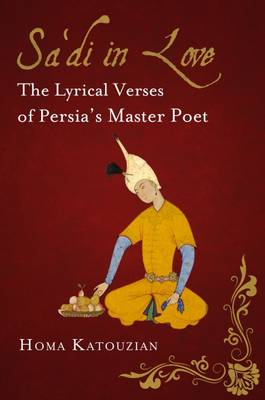

Professor Fatemeh Keshavarz is Roshan Institute Chair in Persian Studies and Director of Roshan Institute for Persian Studies at the University of Maryland, College Park, since 2012. She was appointed Director of the School of Languages, Literatures and Cultures in 2014. Before joining the University of Maryland, she taught at Washington University in St. Louis, where she chaired the Department of Asian and Near Eastern Languages and Literatures. Professor Keshavarz is a published poet and author of six books including Reading Mystical Lyric: the Case of Jalal al-Din Rumi (2004), Recite on the Name of the Red Rose (2006), Jasmine and Stars: Reading more than Lolita in Tehran (2007) and Lyrics of Life: Sa’di on Love, Cosmopolitanism and Care of the Self (2015). In 2009, her NPR appearance on ‘On Being: the Ecstatic Faith of Rumi’ received the Peabody Award, and she received the Hershel Walker Peace and Justice Award. Professor Keshavarz obtained her Ph.D. and M.A. in Near Eastern Studies from the School of Oriental and African Studies at the University of London.
Professor Keshavarz received a grant toward the six-month long Roshan Institute Lecture Series which she designed to accompany the exhibit “One Thousand Years of the Persian Book” held at the Library of Congress from March 27 – September 20, 2014. The inaugural lecture “Illustrating the Persian Book: The Happy Marriage of Literary and Visual Narrative” by Professor John Renard (Saint Louis University) and panel discussion with Professor Renard, Professor Keshavarz and Dr. Amy Landau (Walters Art Museum) took place on March 27. From April to September 2014, 12 other renowned scholars presented lectures on various subjects related to the Persian book, including “Persian Mystical Literature: The Marriage of Poetry and Music” by Professor Keshavarz and Jessika Kenney.

Dr. Hani Khafipour is currently Lecturer in Iranian Studies and Faculty Advisor for the Middle East Studies Student Association at the University of Southern California, where he teaches medieval and modern history of Iran, classical Persian poetry and prose, and other courses. His field of specialization is Safavid history and his research focuses on notions of Perso-Islamic kingship, religio-political legitimacy, and political patronage in this period. He is the Editor of Empires of the Near East and India: Sources for the Study of Safavid, Ottoman, and Mughal Societies (forthcoming, 2016) and the author of the forthcoming book, The Mantle of Authority in an Early Modern Society. Dr. Khafipour has received research grants from the Iran Heritage Foundation and the American Institute of Iranian Studies, and was Andrew W. Mellon Fellow. He received his Ph.D. (2013) and M.A. (2007) in Near Eastern Languages and Civilizations from The University of Chicago.
Mr. Khafipour received a Roshan Institute Fellowship for Excellence in Persian Studies to complete his doctoral dissertation, “The Foundation of the Safavid State: Fealty, Patronage, and Ideals of Authority (1501-1576),” during his academic year 2011-2012 at The University of Chicago.
Khoshniyat, Davood

Mr. Davood Khoshniyat is currently a Research Expert at Advanced Research Institute of Arts (ARIA) in Iran. Prior positions include Director of Public Relations at ARIA and International Affairs Officer at The Iranian Academy of the Arts. He is the author of The Study of structure of design and motifs of Safavid Textiles (The Iranian Academy of the Art, 2006). He obtained his M.A. in Art Research from the University of Tehran, Fine Arts College (2005) and his B.A. in Textile Design from the Art University in Tehran (2001).
Roshan Cultural Heritage Institute provided a grant to the East-West Center to support the participation of Mr. Khoshniyat in the Asia Pacific Leadership Program during academic year 2011-2012. He was offered an internship in the Department of Islamic Art at The Metropolitan Museum of Art in New York during the Spring 2012 semester, where he continued his research on Persian art.

Dr. Pedram Khosronejad is currently Adjunct Professor at the Religion and Society Research Cluster in School of Social Sciences at Western Sydney University and Curator of Persian Arts at the Museum of Applied Arts and Sciences in Sydney, Australia. Previously positions include Farzaneh Family Scholar and Associate Director for Iranian and Persian Gulf Studies at the School of International Studies/School of Media and Strategic Communications at Oklahoma State University as well as Goli Rais Larizadeh Fellow of the Iran Heritage Foundation for the Anthropology of Iran in the Department of Social Anthropology at the University of St. Andrews. Dr. Khosronejad received his Ph.D. in Social Anthropology-Ethnography from the École des Hautes Études en Sciences Sociales (EHESS) in 2007 and his D.E.A. (Diplome d’Études Approfondies) from the École Pratique des Hautes Études/Sorbonne in 2000.
In 2004, Mr. Khosronejad was awarded a Roshan Institute Fellowship for Excellence in Persian Studies to complete his doctoral dissertation, “Lion Tombstones Among Nomad Bakhtiaris in The South-West of Iran,” at EHESS. Working under the guidance of Professor Thierry Zarcone (CNRS), he focused on how religious and oral beliefs regarding death and dying lead to the creation of mortuary material culture and mortuary visual representation. Mr. Khosronejad’s doctorate thesis emerged from interdisciplinary research based mostly on field research among the Bakhtiari nomads of Iran.

Professor Amadou Koné is Professor of French and African Studies at Georgetown University since 1997. Previously he was Professor of French at Tulane University in Louisiana, and from 1977 to 1990, he taught literature in his country at the Université Nationale de Côte d’Ivoire in Abidjan. Outside of teaching, Professor Koné has received international recognition as an award-winning author. He has published a total of six novels, three plays and several short stories. In 1976, his play “Les Canaris sont vides” won the grand prize at the Interafrican Theatrical Competition, and in 1985, he received the Best African Novel Award from the Léopold Sédar Senghor Foundation. He holds a Doctorat de Troisième Cycle in Comparative Literature from the Université de Tours, France, and a Doctorat d’Etat ès Lettres from the Université de Limoges, France.
In 2006, Professor Koné was awarded a Roshan Institute Fellowship for the production of his play “Sigui, Siguila, Siguiya“. The African play successfully opened on November 30, 2006, with performances through December 3, 2006, at the University’s new Davis Performing Arts Center. The production of this theatre project enhances and encourages intercultural communication in conjunction with the mission of Roshan Institute.

Dr. Habib Ladjevardi has been the Director of the Harvard Iranian Oral History Project at the Harvard University Center for Middle Eastern Studies since 1981. He has also been the Chair of the editorial board of the Harvard Middle Eastern Monograph Series since 1990 and has served on a number of boards and councils in the private and public sectors. Dr. Ladjevardi was the principal Founder of the Iran Center for Management Studies in Tehran (established in 1970 in cooperation with members of the faculty of the Harvard Business School), where he taught Public Policy until 1978. He is the author of Labor Unions and Autocracy in Iran (Syracuse University Press, 1985). His degrees include a Ph.D. from the University of Oxford, an M.B.A. from Harvard University and a B.S. from Yale University.
In 2005, Dr. Ladjevardi was awarded a Roshan Institute Fellowship for the Iranian Oral History Project, which provides scholars studying the contemporary political history of Iran with a collection of personal accounts of many of Iran’s most important and influential political leaders of the latter ha![]() lf of the 20th century. Our funding enabled Dr. Ladjevardi to digitize the collection by transforming the audio recordings and transcripts into a stable, permanent electronic format that is now stored at Harvard College Library Iranian Oral History Project website.
lf of the 20th century. Our funding enabled Dr. Ladjevardi to digitize the collection by transforming the audio recordings and transcripts into a stable, permanent electronic format that is now stored at Harvard College Library Iranian Oral History Project website.

Professor Richard K. Larson teaches Linguistics at Stony Brook University, where he was Department Chair in academic years 1999-2002 and 2011-2017. His research has examined a wide variety of topics in syntax and semantics, including relative and adverbial clauses, NP adverbs, disjunctions, prepositional phrases, double objects and clausal complements. He has a long-standing interest in many languages, including Warlpiri, Japanese, Korean, Mandarin, Persian, Zazaki, Gilaki and Pashto. Professor Larson has published numerous scholarly articles and is the author/co-author of two linguistic textbooks. He received his Ph.D. from the University of Wisconsin-Madison in 1983.
In 2018, Roshan Cultural Heritage Institute awarded a grant to Stony Brook University in support of Professor Larson‘s research on endangered Iranian languages. The grant includes funding for a three-year Elahé Omidyar Mir-Djalali Postdoctoral Fellowship in Endangered Iranian Languages to be awarded for research on Caspian languages, starting in Fall 2019.
In 2016, Professor Larson was awarded a Roshan Institute Fellowship for the first North American Conference in Iranian Linguistics, which was held at Stony Brook University on April 28-30, 2017. This was the first conference specializing exclusively in languages of the Iranian family ever held in North America. The conference included presentations of 36 papers and four posters; most were state-of-the-art reports on research on the most important and unique constructions found in the Iranian language family (-ra marking, Ezafé, complex predicates, split ergativity). The last day was devoted to a panel on endangered Iranian languages of Iran. The publication of a NACIL 1 proceedings volume is planned for June 2018.

Dr. Chad Lingwood is currently Associate Professor of History at Grand Valley State University, where he teaches courses on Islamic civilization, Islamic imperial history, and modern Iran. His research explores the intersection of politics and religion, specifically Islamic mysticism (Sufism), in late-medieval and early-modern Iran. His peer-reviewed journal articles include “‘The Qebla of Jami is None Other Than Tabriz’: ‘Abd al-Rahman Jami and Naqshbandi Sufism at the Aq Qoyunlu Royal Court,” Journal of Persianate Studies 4, no. 2 (2011): 233-45 and “Jami’s Salaman va Absal: Political Statements and Mystical Advice Addressed to the Aq Qoyunlu court of Sultan Ya’qub (d. 896/1490),” Iranian Studies 44, no. 2 (2011): 175-91. Dr. Lingwood received his Ph.D. in Classical Persian Literature and Medieval Iranian History from the University of Toronto (2009) and his M.A. in Persian Literature and Islamic Studies from Washington University in St. Louis (2001).
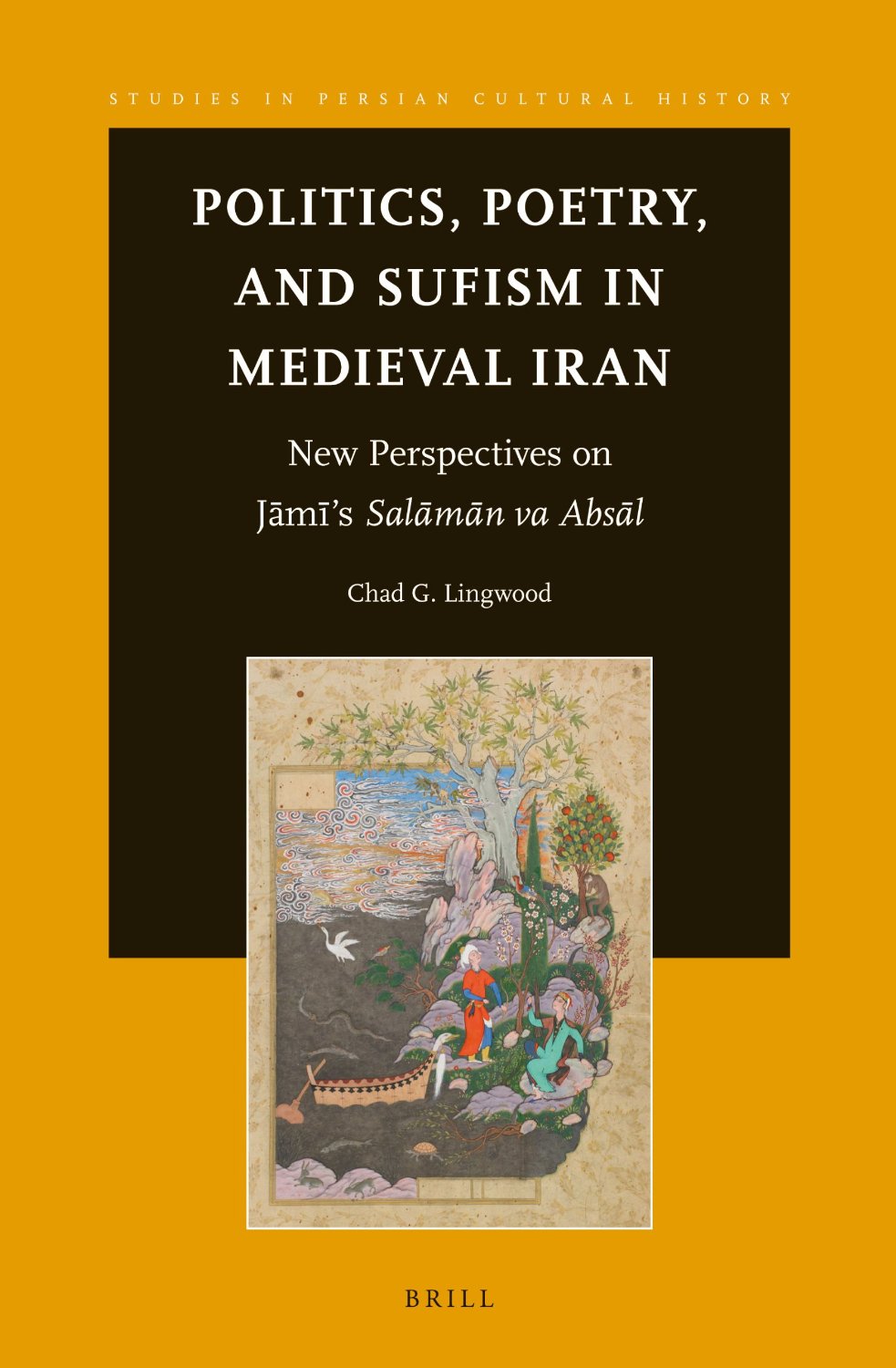 In 2006, Mr. Lingwood received a Roshan Institute Fellowship for Excellence in Persian Studies toward his Ph.D. research in the Department of Near and Middle Eastern Civilizations at the University of Toronto. His dissertation, “Jami’s Salaman va Absal: A 15th-Century Mystical Mirror for Princes in the Aq Qoyunlu Context,” stemmed from his academic focus on classical Persian literature and medieval Iranian history, and was published as a book-length monograph under the title Politics, Poetry, and Sufism in Medieval Iran: New Perspectives on Jami’s Salaman va Absal (Brill Academic Publishers, 2014).
In 2006, Mr. Lingwood received a Roshan Institute Fellowship for Excellence in Persian Studies toward his Ph.D. research in the Department of Near and Middle Eastern Civilizations at the University of Toronto. His dissertation, “Jami’s Salaman va Absal: A 15th-Century Mystical Mirror for Princes in the Aq Qoyunlu Context,” stemmed from his academic focus on classical Persian literature and medieval Iranian history, and was published as a book-length monograph under the title Politics, Poetry, and Sufism in Medieval Iran: New Perspectives on Jami’s Salaman va Absal (Brill Academic Publishers, 2014).

Dr. Soodabeh Malekzadeh obtained her Ph.D. in History in 2018 from the University of California, Irvine, where she also received an M.A. in History in 2013. Her research interests include ancient Persian languages, ancient Iranian religion and tradition as well as Persian mythology and literature. She is a member of the Sasanika: Late Antique Iran Project team and has co-authored several scholarly articles with Professor Touraj Daryaee, including “Falcons and Falconry in Premodern Persia,” PreModern Falconry and Bird Symbolism. Ed. O. Grim, U. Schmolcke. (Forthcoming, 2016), “King Huvishak, Yima, and the Bird: Observations from a Pradisical State,” Electrum 22 (2016): 107-114, “Why Kartir Was Forgotten,” Iran Nameh 30:2 (Summer 2015): 280-287, and “The Performance of Pain and Remembrance in Late Ancient Iran,” The Silk Road 12 (2014): 57-64. Dr. Malekzadeh also has an M.A. in Ancient Languages and Cultures from Shiraz University, Iran (2011).
In 2017, Ms. Malekzadeh was awarded the Elahé Omidyar Mir-Djalali Fellowship for Excellence in Persian Studies for the completion of her doctoral dissertation, “The Sasanian Empire in the Fifth Century: The Case of Yazdegerd I and Bahram V.”
Ms. Malekzadeh was awarded a Roshan Institute Fellowship for Excellence in Persian Studies for doctoral research on Sasanian history, in particular the reign of Bahram V, during summer 2014. Her dissertation, “Bahram V: The Romantic Hunter-King or Judo-Arab Emperor?” explores the King’s life and reign, the cultural, military and religious connections and relations of the 5th-century Persian Empire with the Roman Empire as well as Bahram’s enduring legacy as a romantic hunter-king in Persian literature and art.

Professor Afshin Matin-Asgari is Professor of History and Religious Studies at California State University, Los Angeles, where he teaches courses in Middle East history, world history, Islam, and comparative religion. His areas of specialization are 20th-century Middle East, modern Iran, and modern Islamic political and intellectual movements. Professor Matin-Asgari has published scholarly articles in Iranian Studies, Critique and South Asia Bulletin. He received his Ph.D. in Middle East History from UCLA (1993). His doctoral dissertation was published as the book, Iranian Student Opposition to the Shah (Mazda Publishers, 2001).
Professor Matin-Asgari was awarded a Roshan Institute Fellowship for the conference “Iranian Identity in National, Historical and Global Contexts”. Held at CSULA on May 27, 2010, the conference attracted nearly 60 people, including CSULA faculty and students as well as Iranian community members, who enjoyed lectures and panels presented by ten scholars in Persian Studies.

Dr. Ida Meftahi is currently Assistant Professor of the Middle East at Boise State University. She specializes in history of modern Iran with an emphasis on the intersections of politics, gender, and performance. Previously, Dr. Meftahi was a Visiting Assistant Professor in contemporary Iranian culture and society at Roshan Institute for Persian Studies, University of Maryland College Park, where she was the director of the Lalehzar Street Digital Archive, a project of the Roshan Initiative for Digital Humanities, as well as faculty advisor for Roshangar: Roshan Undergraduate Journal for Persian Studies. Her first book, Gender and Dance in Modern Iran: Biopolitics on Stage (Routledge, 2016) investigates the way dancing bodies have been providing evidence for competing representations of modernity, urbanism, and religiosity across the twentieth century. Dr. Meftahi holds a Ph.D. in Near and Middle Eastern Civilizations from the University of Toronto (2013) and an M.A. in Dance from York University, Canada (2007).
In 2018, Dr. Meftahi‘s first book, Gender and Dance in Modern Iran: Biopolitics on Stage, won the Latifeh Yarshater Award given out by the Association for Iranian Studies at its Twelfth Biennial Conference, which took place on August 14-17, at the University of California, Irvine.
In 2011, Ms. Meftahi was awarded a Roshan Institute Fellowship for Excellence in Persian Studies to support her doctoral dissertation, “The Biopolitics of Dance in Twentieth-Century Iran,” under the supervision of Professor Mohamad Tavakoli-Targhi at the University of Toronto.


Dr. Tytus Mikolajczak currently is Assistant Professor in the Faculty of History at Adam Mickiewicz University in Poznan, Poland. He received his Ph.D. in Cuneiform Studies from the Department of Near Eastern Languages and Civilizations at The University of Chicago, in March 2018. Dr. Mikolajczak‘s research interests include history, languages, religion, art history and material cultures of the Ancient Near East in the First Millennium BC, with focus on Iran. He has received several fellowships from The University of Chicago, the Lanckoronski Foundation, and the University of Notre Dame. He holds M.A. degrees in Near Eastern Languages and Civilizations from The University of Chicago (2010) and in Ancient History from the Institute of History at the University of Gdansk, Poland (2002).
Mr. Mikolajczak was awarded the first Elahé Omidyar Mir-Djalali Fellowship established at the Louvre Museum. In 2014-15, he studied and documenting approximately 300 Achaemenid objects in the collections of the Oriental Institute Museum of The University of Chicago in view of their publication on the Achemenet Program website, a research initiative managed by the Louvre. His project directors were Professor Stolper, Dr. Jack Grenn (Oriental Institute), Professor Emeritus Pierre Briant (Collège de France) and Ms. Yannick Lintz (Department of Islamic Art, Louvre Museum).

Dr. Matthew Thomas Miller is currently Assistant Professor of Persian and the Associate Director of the Roshan Initiative in Persian Digital Humanities at the University of Maryland, College Park (UMD). His research focuses on medieval Sufi literature, the history of sexuality and the body, and digital humanities. He holds a Ph.D. in Comparative Literature (Persian and Arabic) and an M.A. in Islamic and Middle Eastern Studies, both from Washington University in St. Louis.
Mr. Miller was awarded a Roshan Institute Fellowship for Excellence in Persian Studies to support his Ph.D. work on the 13th century Sufi poet Fakhr al-Din ‘Iraqi during the academic year 2012-2013.
Monfaredi, Elham, Ph.D,

Dr. Elham Monfaredi obtained a Ph.D. in the Department of Second Language Studies at the University of Hawaii at Manoa in August 2019. Her research interests include cross-cultural pragmatics, inter-language pragmatics, discourse analysis and conversational analysis. While at UH Manoa, she was a Graduate Assistant in the Persian Language, Linguistics and Culture Program and was awarded the Roshan Institute Fellowship in Persian Linguistics, Language Acquisition and Applied Linguistics, three years in a row. She has also been a Persian Instructor in the Persian Language Summer Institute at the University of Maryland, College Park, in the summer of 2016, 2017, 2018 and 2019.
In 2018, Ms. Monfaredi was awarded the Elahé Omidyar Mir-Djalali Fellowship for Excellence in Persian Studies, for the completion of her doctoral studies and dissertation, entitled “Storytelling in Persian Language Classrooms: A Conversation Analytic Perspective,” during the academic year 2018-2019.

Dr. Ali Mousavi is Lecturer in Iranian Archaeology in the Department of Near Eastern Languages and Cultures at the University of California, Los Angeles and Lecturer in Iranian History at the University of California, Irvine. Previously, he was Assistant Curator of Ancient Near Eastern Art at the Los Angeles County Museum of Art (LACMA), Research Fellow at the Asian Art Museum in San Francisco, and Field Director of the Archaeological Survey Project of the Plan of Tehran. Dr. Mousavi has considerable archaeological fieldwork experience in Iran and has written and lectured extensively on Iranian archaeology, including on the cities of Persepolis, Susa, Pasargadae and Parsa. He received his Ph.D. in Near Eastern Studies from the University of California, Berkeley (2005), and both his M.A. (1997) and B.A. (1996) in Archaeology from the Université Lyon II in France.
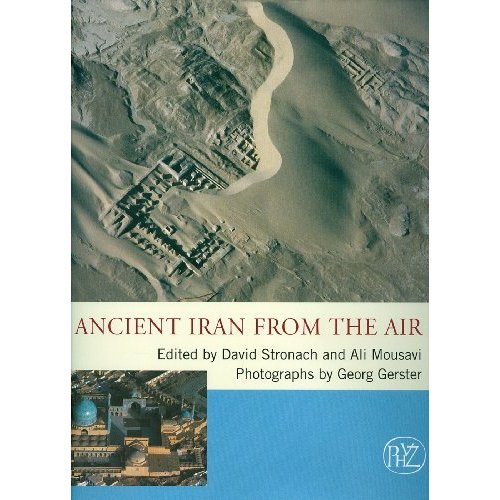 In 2012, Dr. Mousavi and Professor David Stronach of UC Berkeley, received a Roshan Institute Fellowship for the English publication of Ancient Iran from the Air (Philipp von Zabern, 2012), originally published in German as Irans Erbe in 2009. This book features many of the more exceptional landscapes and monuments of Iran as seen through the lens of the world’s foremost aerial photographer, George Gerster.
In 2012, Dr. Mousavi and Professor David Stronach of UC Berkeley, received a Roshan Institute Fellowship for the English publication of Ancient Iran from the Air (Philipp von Zabern, 2012), originally published in German as Irans Erbe in 2009. This book features many of the more exceptional landscapes and monuments of Iran as seen through the lens of the world’s foremost aerial photographer, George Gerster.

Professor Afsaneh Najmabadi is the Francis Lee Higginson Professor of History and of Studies of Women, Gender and Sexuality at Harvard University. She is a scholar of the history of the Middle East and specializes in socio-cultural transformations of gender and sexuality in modern Middle East and South Asia. Her books, Women with Mustaches and Men without Beards: Gender and Sexual Anxieties of Iranian Modernity (Berkeley: University of California Press, 2005) and Professing Selves: Transsexuality and Same-Sex Desire in Contemporary Iran (Duke University Press, 2014), each received the Joan Kelly Memorial Prize from the American Historical Association. Professor Najmabadi leads a digital archive and website, Women’s Worlds in Qajar Iran, which was recognized by the White House Office of Public Engagement in May, 2012. She holds a Ph.D. in Sociology from the University of Manchester (1984), and both M.A. (1970) and B.A. in Physics (1968) from Harvard University.
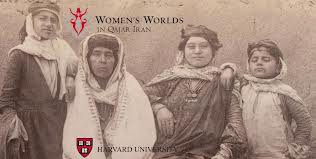 In 2013, Professor Najmabadi was awarded a Roshan Institute Fellowship in support of Women’s Worlds in Qajar Iran, a website and digital archive of materials related to the lives of women during the Qajar era, including writings, photographs, financial and legal documents, art work, and objects of daily use. The project’s team of researchers identifies relevant materials from both private collections and institutions around the world, then digitizes the materials to allow scholars to access them on the website. The project has been awarded three two-year grants from the National Endowment for the Humanities.
In 2013, Professor Najmabadi was awarded a Roshan Institute Fellowship in support of Women’s Worlds in Qajar Iran, a website and digital archive of materials related to the lives of women during the Qajar era, including writings, photographs, financial and legal documents, art work, and objects of daily use. The project’s team of researchers identifies relevant materials from both private collections and institutions around the world, then digitizes the materials to allow scholars to access them on the website. The project has been awarded three two-year grants from the National Endowment for the Humanities.

Mohsen Namjoo is an Iranian artist, songwriter, singer, music scholar and setar player. He began his musical training at the age of 12, studying under Nasrolla Nasehpoor, Alireza Mashayekhi, Azin Movahed and other masters. He also studied Iranian folk music under Haj Ghorbane Soleimani. His unique music style resembles a patchwork of Persian classical poetry of Hafez, Rumi or Sa’di with western music, namely rock, blues and jazz. He has released several music albums and performed in and outside of Iran. In 2008, Namjoo kicked off his first solo US tour, which granted him the Visiting Artist Fellowship at Stanford University. In the fall of 2011, he joined the team of celebrated Iranian artist Shirin Neshat as the music director of her performance OverRuled, commissioned by the Performa 2011 Festival in New York City. Hailed as “the Bob Dylan of Iran” by the New York Times, Namjoo is a visionary artist who speaks for and touches the souls of today’s youth.
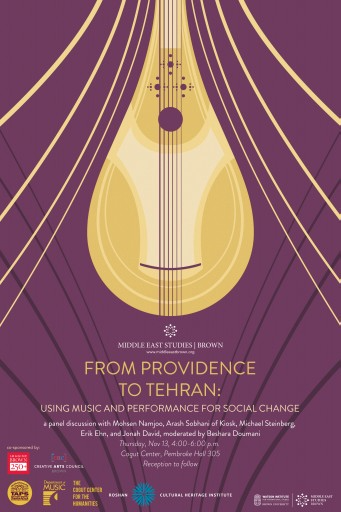 Roshan Cultural Heritage Institute supported Namjoo‘s 2014 residency as a Visiting Scholar in the Middle East Studies program of Brown University. During his residency, he taught courses on Persian music and held musical talks and concerts. The highlight of this initiative was the Iranian music festival, “Underground Iran,” held on November 15 at the Rhode Island School of Design Auditorium. It featured Namjoo and Arash Sobhani (KIOSK) together for the first time on stage. Accompanying this music festival was a panel discussion on November 13, entitled “From Providence to Tehran: Using Music and Performance for Social Change,” with Namjoo, Sobhani and Brown faculty, moderated by Professor Beshara Doumani (Director, Middle East Studies).
Roshan Cultural Heritage Institute supported Namjoo‘s 2014 residency as a Visiting Scholar in the Middle East Studies program of Brown University. During his residency, he taught courses on Persian music and held musical talks and concerts. The highlight of this initiative was the Iranian music festival, “Underground Iran,” held on November 15 at the Rhode Island School of Design Auditorium. It featured Namjoo and Arash Sobhani (KIOSK) together for the first time on stage. Accompanying this music festival was a panel discussion on November 13, entitled “From Providence to Tehran: Using Music and Performance for Social Change,” with Namjoo, Sobhani and Brown faculty, moderated by Professor Beshara Doumani (Director, Middle East Studies).

Dr. Laetitia Nanquette is currently a Lecturer and Australian Research Council DECRA Fellow in the School of the Arts and Media at the University of New South Wales (UNSW) in Sydney, Australia, which she joined in 2013 as Vice-Chancellor’s Postdoctoral Research Fellow. Her current research is entitled “Global Comparative Study of Contemporary Iranian Literature”. In 2011-2012, she was a Fullbright Visiting Scholar in the Department of Comparative Literature at Harvard University. Dr. Nanquette is the author of Orientalism versus Occidentalism: Literary and Cultural Imaging between France and Iran since the Islamic Revolution (I.B. Tauris, 2013) and her translations of Iranian short stories into French have been published in literary journals. She obtained both her Ph.D. (2011) and her M.A. (2007) in Middle Eastern Literary and Cultural Studies from the School of Oriental and African Studies, University of London.
While at Harvard University in 2011-2012, Dr. Nanquette received a Roshan Institute Fellowship for postdoctoral research on the production, distribution and reception of the Persian novel in the United States and in Iran since 1979. Her work focused on three areas: the literary field in Iran, the Persian novel in the U.S. and the literary links between Iran and the U.S., with each area resulting in a scholarly article. Dr. Laetitia Nanquette is currently a Lecturer and Australian Research Council DECRA Fellow in the School of the Arts and Media at the University of New South Wales (UNSW) in Sydney, Australia, which she joined in 2013 as Vice-Chancellor’s Postdoctoral Research Fellow. Her current research is entitled “Global Comparative Study of Contemporary Iranian Literature”. In 2011-2012, she was a Fullbright Visiting Scholar in the Department of Comparative Literature at Harvard University. Dr. Nanquette is the author of Orientalism versus Occidentalism: Literary and Cultural Imaging between France and Iran since the Islamic Revolution (I.B. Tauris, 2013) and her translations of Iranian short stories into French have been published in literary journals. She obtained both her Ph.D. (2011) and her M.A. (2007) in Middle Eastern Literary and Cultural Studies from the School of Oriental and African Studies, University of London.

Dr. Safoura Nourbakhsh is currently an Adjunct Lecturer in the College of Women’s and Gender Studies at Georgetown University. She received a Ph.D. in Women’s Studies from the University of Maryland, College Park, in 2017. Her interest in feminist theory and women’s right led to her Persian translation of Virginia Woolf’s A Room of Its Own (Niloofar Publishing, 2004), the first published translation of the book. She is the Managing Editor of Sufi Journal and the Project Manager of the Persian adaptation/translation of Our Bodies, Ourselves, the most comprehensive and reliable resource on women’s health that has been translated into more than two dozens languages. The Department of Women’s Studies and Roshan Institute for Persian Studies at UMD have secured the Persian adaptation of the book in a digital interactive format. Dr. Nourbakhsh received her M.A. and B.A. in English Literature from San Francisco State University.
In 2013, Ms. Nourbakhsh became the recipient of the first Roshan Institute Fellowship for Excellence in Persian Studies established at the University of Maryland, College Park. The award supported her doctoral dissertation, “Expressions of Gender and Sexuality in Persian Sufism” in the Department of Women’s Studies.

Professor Hossein Omoumi is a noted musician, scholar and master of the Persian reed flute called the ney. He currently holds the Maseeh Professorship in Persian Performing Arts at the University of California, Irvine. Prior to this endowed position, he served and/or taught at the National Conservatory, Tehran University, Center for Conservation and Diffusion of Music (Iran National Television) in Tehran, Center for Oriental Music Studies of Sorbonne University in Paris, the Department of Ethnomusicology at UCLA, and the University of Washington. Professor Omoumi has performed extensively in the U.S. and in Europe. He has recorded several albums, and has arranged and composed 11 lessons to teach the principals of classical Persian music under the title of pish-radif. He received his Ph.D. in Architecture from the University of Florence, Italy.
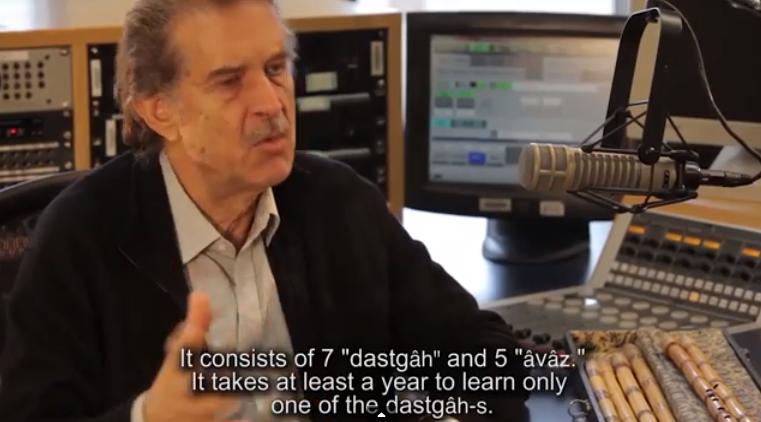 In 2013, Professor Omoumi was supported by a grant from Roshan Cultural Heritage Institute for the production of the documentary film “Classical Persian Music: Hossein Omoumi from Isfahan to Irvine” as well as educational materials and outreach activities to raise awareness and appreciation for classical Persian music. Completed in 2016, the documentary film and the website pish-radif introduce the history and beauty of classical Persian music through Professor Omoumi‘s innovations in education and musical technology.
In 2013, Professor Omoumi was supported by a grant from Roshan Cultural Heritage Institute for the production of the documentary film “Classical Persian Music: Hossein Omoumi from Isfahan to Irvine” as well as educational materials and outreach activities to raise awareness and appreciation for classical Persian music. Completed in 2016, the documentary film and the website pish-radif introduce the history and beauty of classical Persian music through Professor Omoumi‘s innovations in education and musical technology.

Ms. Sepideh Raissadat is a Persian classical vocalist and musician, who began her recording career at the age of 18 and was the first female vocalist to have a solo public performance in Iran after the 1979 revolution. Her major soloist instrument is the Setar. She has studied with the famous Iranian Diva Parissa and with renowned masters Parviz Meshkatian and Mohammad-Reza Lofti. She has been invited to perform by many prestigious institutions, including UNESCO, the Vatican, the BBC and RAI. Ms. Raissadat is currently pursuing a Ph.D. in Ethnomusicology at the University of Toronto, where she obtained her M.A. in Ethnomusicology. She spent Winter Quarter 2018 as an Ethnomusicology Visiting Artist at The School of Music of the University of Washington, where she taught Persian music.
In 2016, Ms. Raissadat received a Roshan Institute Fellowship for the Rameshgari Project, which aims to rehabilitate the nearly forgotten traditional collaborative form of tasnif-composing. One of the oldest and most representative arts of the Iranian culture, tasnif, or the Persian ballad, combines voice, classical music, poetry and social expression. Ms. Raissadat used her fellowship to produce an album, a website and a concert at the University of Toronto.
Rasekhi, Vahideh, Ph.D.

Dr. Vahideh Rasekhi was Elahé Omidyar Mir-Djalali Postdoctoral Fellow in Iranian Linguistics at UCLA Department of Linguistics, where she conducted research on the syntax of Iranian languages during two academic years, 2018-2020. Her primary area of interest is syntax (ellipsis, long-distance dependencies, and passive/causative structures). She is also interested in phonology (loanword adaptation, neutralization and markedness) and computational linguistics. Dr. Rasekhi received a Ph.D. in Linguistics from Stony Brook University and an M.A. in Linguistics from California State University Fresno.
Ms. Rasekhi was awarded a Roshan Institute Fellowship for Excellence in Persian Studies to complete her doctoral dissertation, “Ellipsis and Information Structure: Evidence from Persian,” during the academic year 2016-2017.

Dr. Golbarg Rekabtalaei is currently Assistant Professor in the Department of History at Seton Hall University, where she also is the Co-Director of the Middle Eastern Studies Program. She was a Postdoctoral Teaching Scholar in the Department of History at North Carolina State University from 2015 to 2017. Her interests include Iranian studies, modern Middle East, modern Iran, cultural theory/history, Iranian cinema, and Middle Eastern cinema: communication media. Her book, Iranian Cosmopolitanism: A Cinematic History, was published in Cambridge University Press’s Global Middle East book series in 2019. Dr. Rekabtalaei holds a Ph.D. in Modern Iran (2015) and an M.A. in Modern Middle East (2008) from the University of Toronto.
In 2012, Golbarg Rekabtalaei received a Roshan Institute Fellowship for Excellence in Persian Studies to support the completion of her doctoral dissertation, “Cinematic Modernity: Cosmopolitan Reel Imagination in Twentieth-Century Iran,” in the Department of Near and Middle Eastern Civilizations at the University of Toronto.

Dr. Anousha Sedighi is Professor of Persian and Head of the Persian program at Portland State 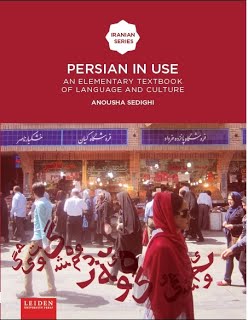 University. She founded the Persian program in 2005 and launched the Persian minor, the only minor in the state of Oregon, in 2011. She was the President of the American Association of Teachers of Persian from 2014-2016 and currently sits in the executive board of the National Council of Less Commonly Taught Languages. Dr. Sedighi‘s areas of research are Persian linguistics, Persian language pedagogy, and Persian as a heritage language. She has published two books, Agreement Restrictions in Persian (Rozenberg & Purdue, 2008), which was re-published in 2011 by Leiden University and the University of Chicago Press, and Persian in Use (Leiden University, 2015) which has been re-published for the fourth time since 2015 due to popular demand and is currently used at more than 20 universities in the U.S. as well as internationally in Germany, Italy, the Netherlands and Canada. Dr. Sedighi received both her Ph.D. (2005) and M.A. (2001) in Linguistics from the University of Ottawa.
University. She founded the Persian program in 2005 and launched the Persian minor, the only minor in the state of Oregon, in 2011. She was the President of the American Association of Teachers of Persian from 2014-2016 and currently sits in the executive board of the National Council of Less Commonly Taught Languages. Dr. Sedighi‘s areas of research are Persian linguistics, Persian language pedagogy, and Persian as a heritage language. She has published two books, Agreement Restrictions in Persian (Rozenberg & Purdue, 2008), which was re-published in 2011 by Leiden University and the University of Chicago Press, and Persian in Use (Leiden University, 2015) which has been re-published for the fourth time since 2015 due to popular demand and is currently used at more than 20 universities in the U.S. as well as internationally in Germany, Italy, the Netherlands and Canada. Dr. Sedighi received both her Ph.D. (2005) and M.A. (2001) in Linguistics from the University of Ottawa.
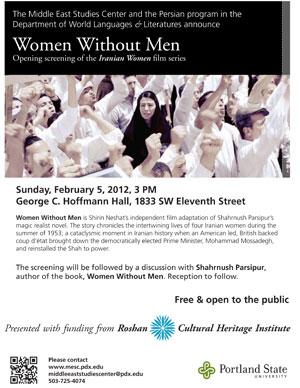 In 2010-2012, Dr. Sedighi was awarded a Roshan Institute Fellowship for the publication of Persian in Use. The grant additionally supported Dr. Sedighi’s “Iranian Women: A Film Series” which included four screenings in February 2012 featuring Shirin Neshat‘s “Women Without Men,” the documentary “Pearls on the Ocean Floor,” “20 Fingers,” and “The Unwanted Woman.”
In 2010-2012, Dr. Sedighi was awarded a Roshan Institute Fellowship for the publication of Persian in Use. The grant additionally supported Dr. Sedighi’s “Iranian Women: A Film Series” which included four screenings in February 2012 featuring Shirin Neshat‘s “Women Without Men,” the documentary “Pearls on the Ocean Floor,” “20 Fingers,” and “The Unwanted Woman.”

Professor Matthew W. Stolper is John A. Wilson Professor Emeritus of Oriental Studies and Professor of Assyriology at The University of Chicago. He serves on the editorial boards of the Chicago Assyrian Dictionary, the Journal of Cuneiform Studies, and Achaemenid Research on Texts and Archaeology (ARTA). His research interests include late Babylonian texts, late Babylonian political and social history, Elamite language and epigraphy, history of ancient Iran, Achaemenid history, and researching the Persepolis fortification texts. Professor Stolper received his Ph.D. in Near Eastern Studies (1974) and M.A. in Near Eastern Languages and Literatures (1967) from the University of Michigan.
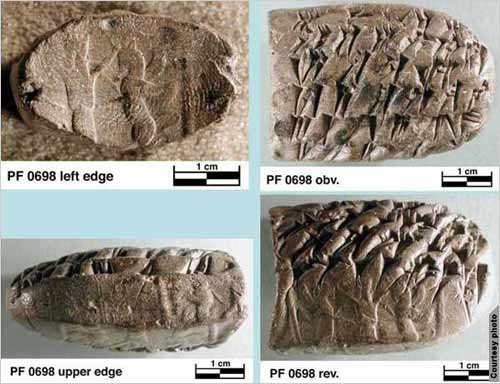 In 2013, Professor Stolper received a Roshan Institute Fellowship for the Persepolis Fortification Archive (PFA) Project at the Oriental Institute. The PFA is a group of clay tablets discovered at Persepolis in 1933 by archaeologists from the Oriental Institute and provides an incredible source of information on the languages, art, institutions and history of Achaemenid Persia at its height. This grant allowed Professor Stolper to engage several students to work on the project during summer 2013 and 2014.
In 2013, Professor Stolper received a Roshan Institute Fellowship for the Persepolis Fortification Archive (PFA) Project at the Oriental Institute. The PFA is a group of clay tablets discovered at Persepolis in 1933 by archaeologists from the Oriental Institute and provides an incredible source of information on the languages, art, institutions and history of Achaemenid Persia at its height. This grant allowed Professor Stolper to engage several students to work on the project during summer 2013 and 2014.
In 2015, Roshan Cultural Heritage Institute awarded a second fellowship to Professor Stolper for the completion of the PFA project. This grant allows for two summer students and eight full-year students to help with the project from June 2015 to June 2018.

Dr. Susan Strauss is Associate Professor in Applied Linguistics and Asian Studies at Pennsylvania State University. Her previous teaching positions were at California State University Long Beach, UCLA, and Kanda University for International Studies in Japan. Her research focuses on the discourse, interaction, conceptualization, and grammar in several languages including Korean, Japanese, American English, Chinese and Persian. She is the Editor-in-Chief of The Korean Language in America since 2013, and has authored numerous books and articles, including Discourse analysis: Putting our worlds into words with Dr. Parastou Feiz (Routledge, 2013). Dr. Strauss received her Ph.D. in Applied Linguistics from UCLA in 1998.
In 2006, Dr. Strauss was awarded a Roshan Institute Fellowship for her two-year “Persian Language and Culture for Intermediate and Advance Level Study” project, in the Department of Applied Linguistics at Penn State.

David Stronach (1931-2020) was Professor Emeritus of Near Eastern Art and Archaeology at the University of California, Berkeley, where he taught from 1981 to 2004. He was the Director of the British Institute of Persian Studies in Tehran from 1961 to 1980, during which he excavated at Pasargadae and Nush-i Jan. During the 1990s, he excavated several parts of Nineveh and in 2004, was the recipient of the Archaeological Institute of America Gold Medal for “Distinguished Archaeological Achievement”. Professor Stronach received both M.A. (1957) and B.A. (1955) in Near Eastern Archaeology from the University of Cambridge.
 In 2012, Professor Stronach and Dr. Ali Mousavi, Assistant Curator of Ancient Near Eastern Art at the Los Angeles County Museum of Art, received a Roshan Institute Fellowship for the English publication of Ancient Iran from the Air (Philipp von Zabern, 2012), originally published in German as “Irans Erbe” in 2009. This book features many of the more exceptional landscapes and monuments of Iran as seen through the lens of the world’s foremost aerial photographer, George Gerster.
In 2012, Professor Stronach and Dr. Ali Mousavi, Assistant Curator of Ancient Near Eastern Art at the Los Angeles County Museum of Art, received a Roshan Institute Fellowship for the English publication of Ancient Iran from the Air (Philipp von Zabern, 2012), originally published in German as “Irans Erbe” in 2009. This book features many of the more exceptional landscapes and monuments of Iran as seen through the lens of the world’s foremost aerial photographer, George Gerster.
Tabibnia, Iraj

Mr. Iraj Tabibnia is a researcher in Persian history and literature. He has been conducting courses on the Shahnameh since 2010 and is a member of the Board of Trustees of World Cultural Heritage Voices since 2011. His previous positions and affiliations include the Board of Directors of the Iranian Professional Association of Architects and Town Planners; Vice Provost of Research and Education of the College of Construction; Board of Directors and Vice President of the Iranian Society of Architects; independent Architect and Town Planner; and cultural Activist. Mr. Tabibnia has conducted research projects related to architecture, town planning and history of several cities in Iran. He has also published several articles and is the author of The Story of the Compact of Rostam and Sohrab. He received a degree in Urbanism (Ph.D. equivalent) from the Institut d’Urbanisme de Paris, Sorbonne (1971) and a degree in Architecture (M.A. equivalent) from the Faculty of Fine Arts at the University of Tehran (1966).

Professor Kamran Talattof joined the University of Arizona in 1999, after teaching at Princeton University for three years, and is currently Professor of Persian Language and Literature in the School of Middle Eastern and North African Studies, where he also directs the Persian and Iranian Studies Program. His research interests include ideology, gender, sexuality, fundamentalism, and Persian language and literature. Professor Talatoff has published numerous scholarly articles and is the author of the award-winning Modernity, Sexuality, and Ideology in Iran: The Life and Legacy of a Popular Female Artist (Syracuse University Press, 2011) and The Politics of Writing in Iran: A History of Modern Persian Literature (Syracuse University Press, 2000). He obtained his Ph.D. in Near Eastern Studies (1996) and his M.A. in Comparative Literature (1994) from the University of Michigan.
Professor Talattof was appointed Elahé Omidyar Mir-Djalali Chair in Persian and Iranian Studies as well as Chair of the Roshan Graduate Interdisciplinary Program in Persian and Iranian Studies, upon the Program’s establishment at the University of Arizona’s Graduate School in 2016.
In 2008, Professor Talattof was awarded a Roshan Institute Fellowship for the publication of Modern Persian: Spoken and Written (Volumes 3, 4 and 5). He is a co-author of the first two volumes published by Yale Press in 2005. This is a series of textbooks designed to teach elementary and intermediate levels of Persian for college students or independent learners.

Dr. Maziar Toosarvandani is currently Assistant Professor of Linguistics at the University of California, Santa Cruz. In much of his research, he explores how sentences are syntactically and semantically related to one another in discourse, comparing two understudied languages – Northern Paiute and Persian – to more common languages. His interest in Iranian languages arises from his work on Persian and his fieldwork on the language of Zoroastrians of Yadz, Iran, from 2004 to 2007. Since 2005, he has been collaborating in eastern California with members of the Northern Paiute language community to create an online documentary resource, that linguists can use as a corpus for answering questions to the structure of this Numic (Uto-Aztecan) language. Dr. Toosarvandani received both his Ph.D. (2010) and M.A. (2006) in Linguistics from the University of California, Berkeley.
 In 2004, Roshan Cultural Heritage Institute provided a fellowship to University of Virginia Linguistics students, Maziar Toosarvandani and Annahita Farudi, in support of the Dari Language Project. The primary goals of the Dari Language Project were to contribute to the preservation and perpetuation of Dari; fund and organize linguistic research, primarily on-site linguistic fieldwork; and disseminate the findings in both public and academic venues. The project, which has since launched a Web site and the construction of an online dictionary, has received attention from online Iranian culture and linguistics resources, and has been acknowledged by authors of published works. Both students have also published papers based on findings from the fieldwork and presented related research by invitation in the US and Europe.
In 2004, Roshan Cultural Heritage Institute provided a fellowship to University of Virginia Linguistics students, Maziar Toosarvandani and Annahita Farudi, in support of the Dari Language Project. The primary goals of the Dari Language Project were to contribute to the preservation and perpetuation of Dari; fund and organize linguistic research, primarily on-site linguistic fieldwork; and disseminate the findings in both public and academic venues. The project, which has since launched a Web site and the construction of an online dictionary, has received attention from online Iranian culture and linguistics resources, and has been acknowledged by authors of published works. Both students have also published papers based on findings from the fieldwork and presented related research by invitation in the US and Europe.

Professor Ehsan Yarshater (1920-2018) was a distinguished scholar, a pioneering educator and a dedicated philanthropist. He was Hagop Kevorkian Professor Emeritus of Iranian Studies at Columbia University, where he founded (in 1968) and directed (until 2016) the Center for Iranian Studies (now the Ehsan Yarshater Center for Iranian Studies). He authored several books and served as the Editor of numerous scholarly works. His books include Persian Poetry in the Second Half of the 15th Century (1953) and Southern Tati Dialects (1970). He was the General Editor of the 40-volume Tabari Translation Project and the Founding Editor of the Persian Texts Series, the Persian Heritage Series and the Persian Studies Series. His life’s work, however, was the Encyclopædia Iranica, which has become an invaluable resource for the study of Iranian history and cultural heritage. Lecture series in his name have been instituted at Harvard University, the University of London, UCLA, and the Centre National de Recherche Scientifique in Paris. In addition to receiving the Georgio Levi Della Vida Medal of Achievement in Islamic Studies from UCLA in 1991, Professor Yarshater was an honorary member of the Association for Iranian Studies, the Societas Europaeas Iranologica, and the Institute of Central and West Asian Studies in Pakistan. He received his Ph.D. in Persian Language and Literature from the University of Tehran (1947) and his Ph.D. in Old and Middle Iranian from the University of London (1960). Professor Yarshater passed away on September 1, 2018, at the age of 98.

